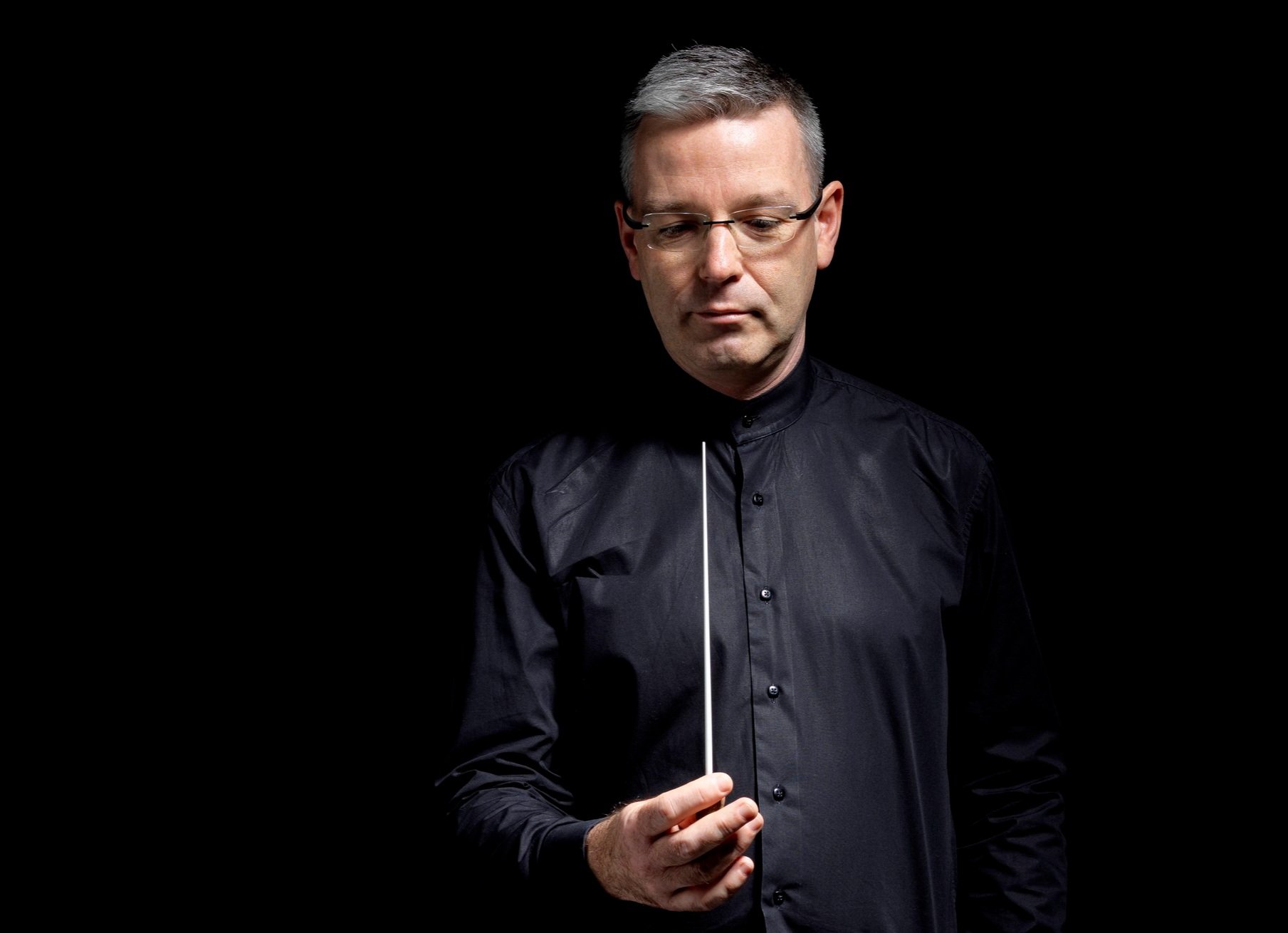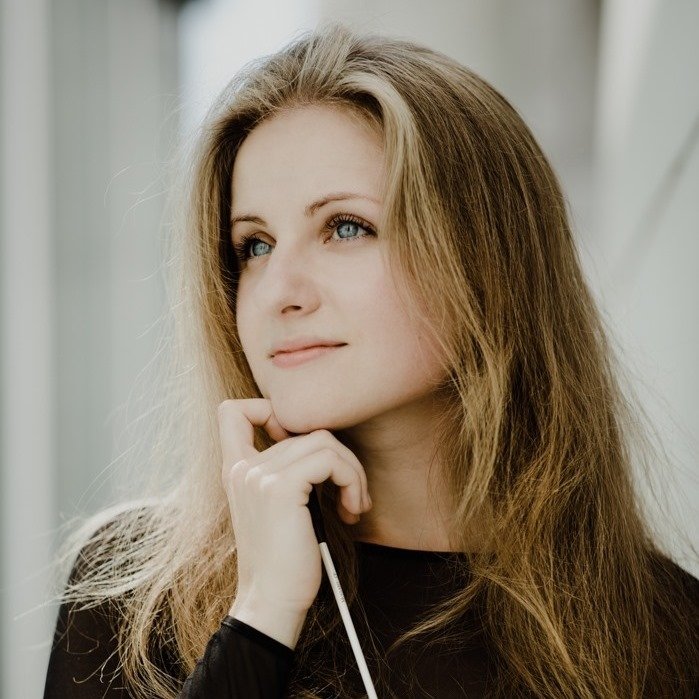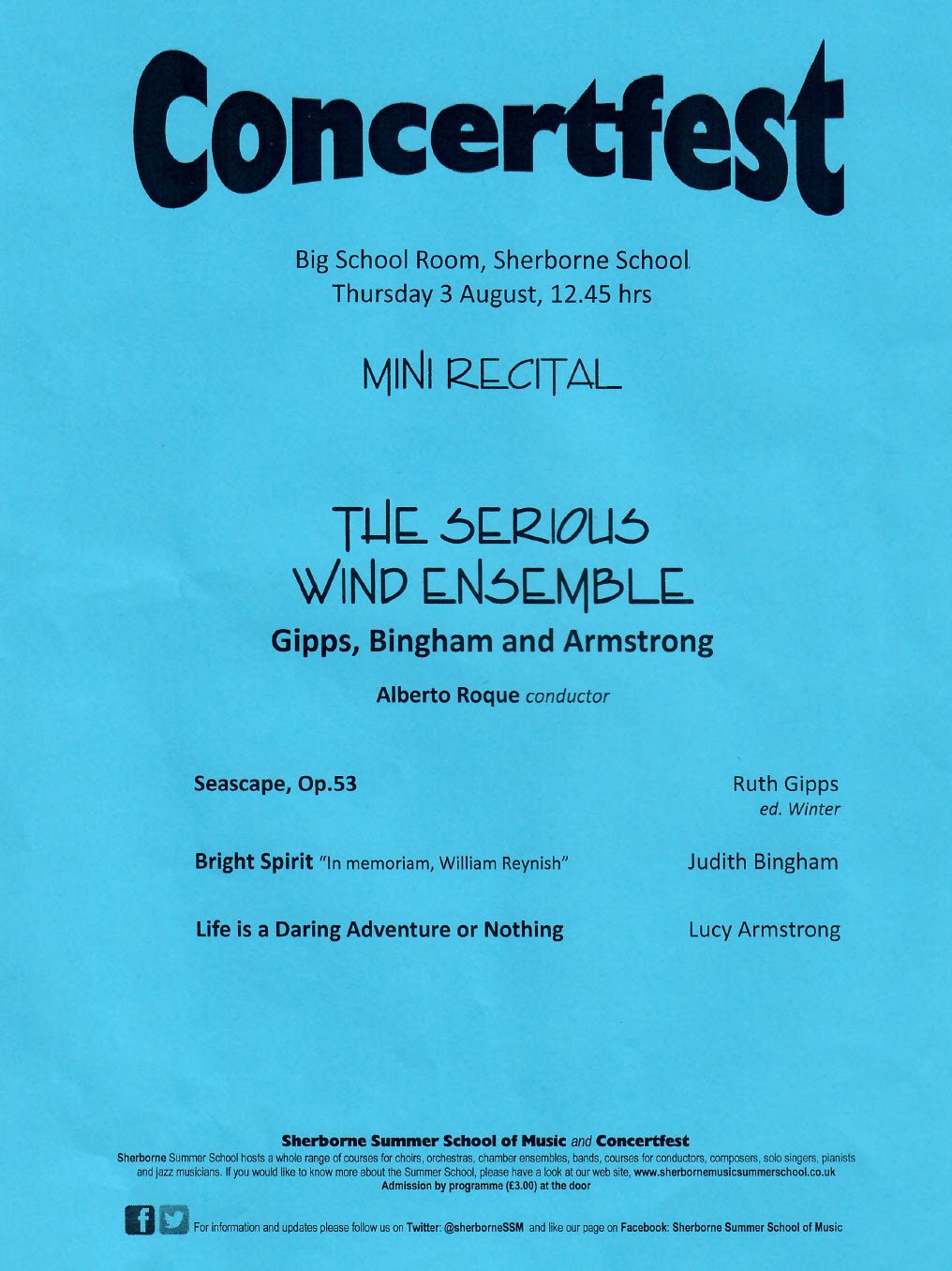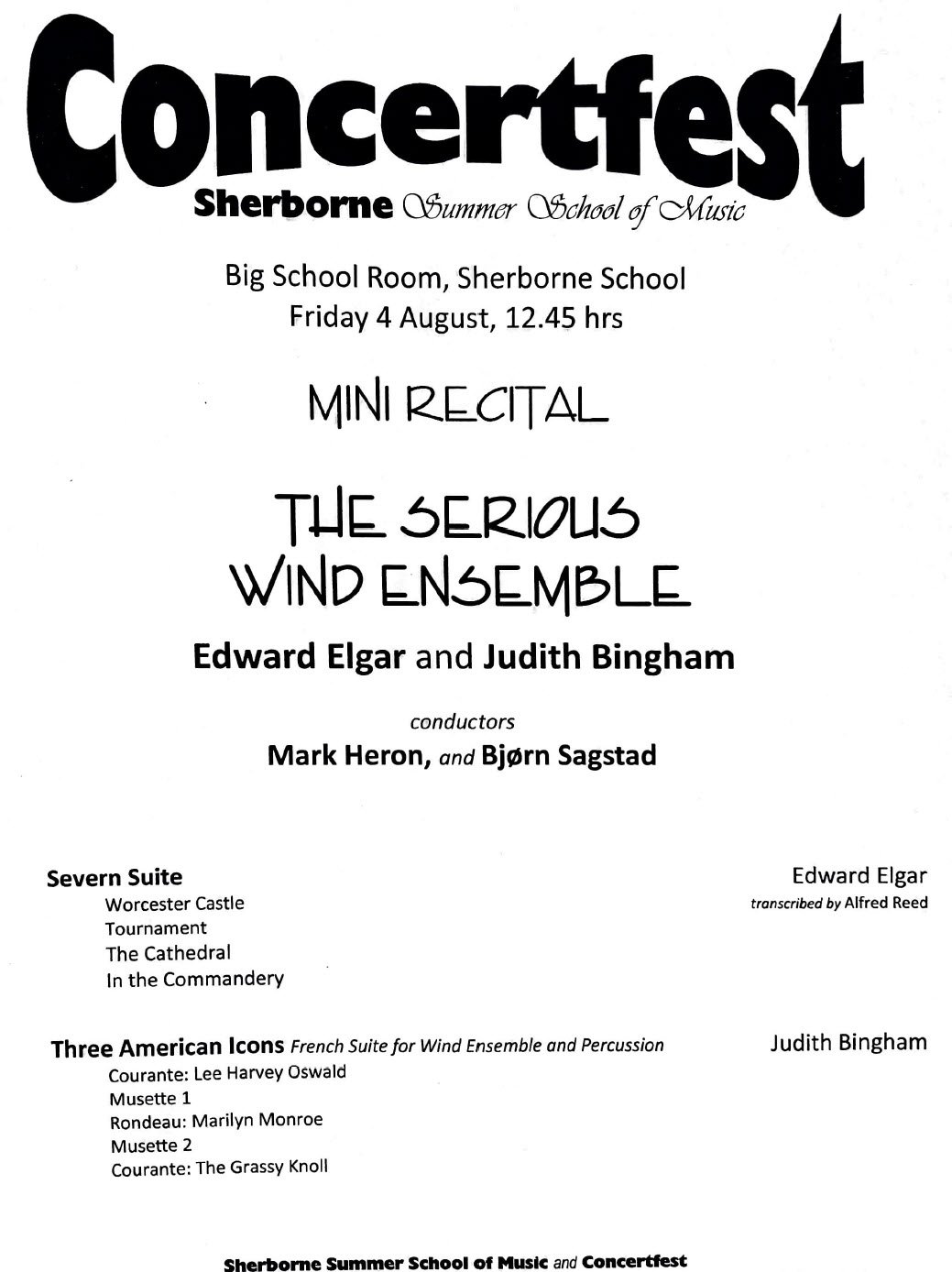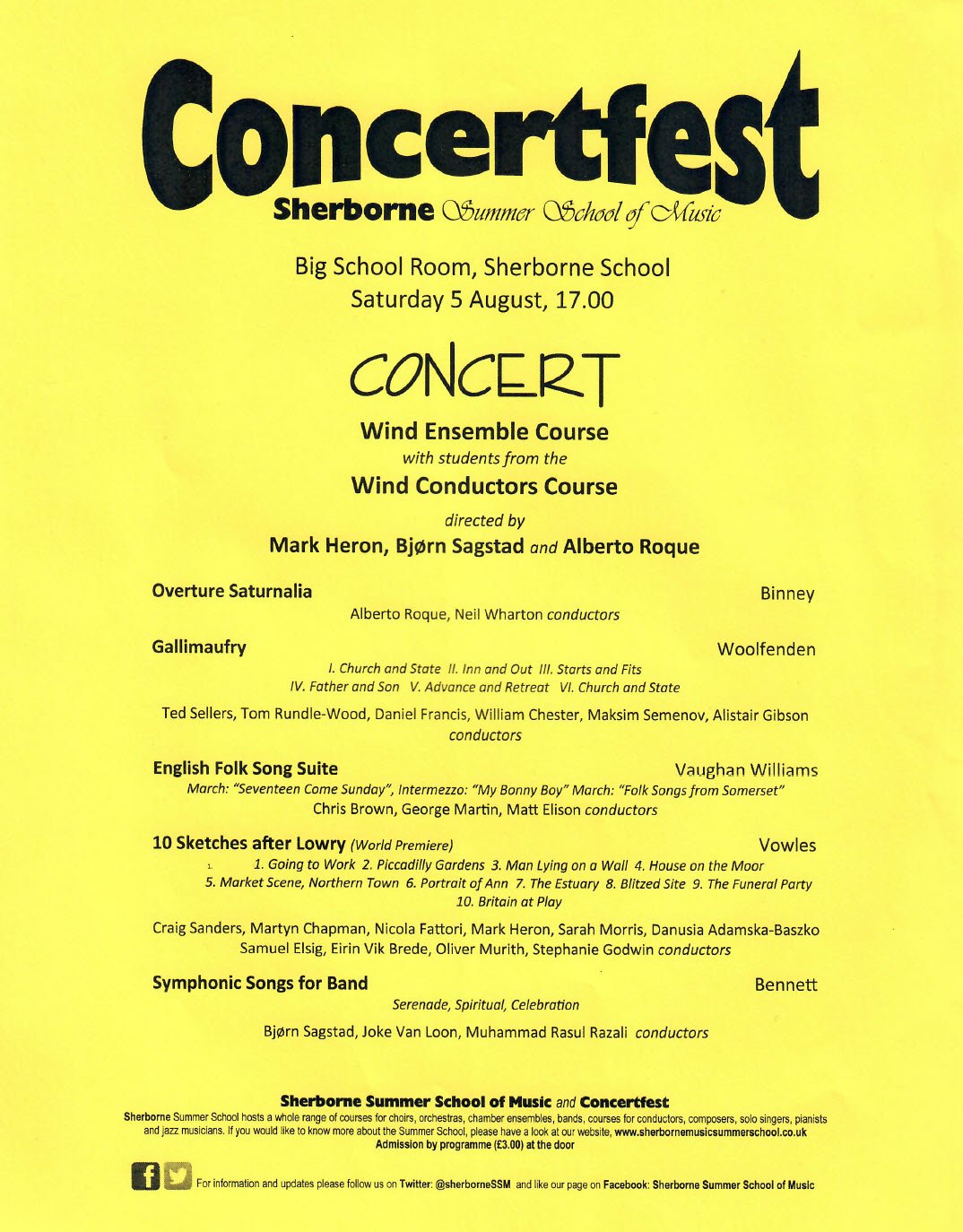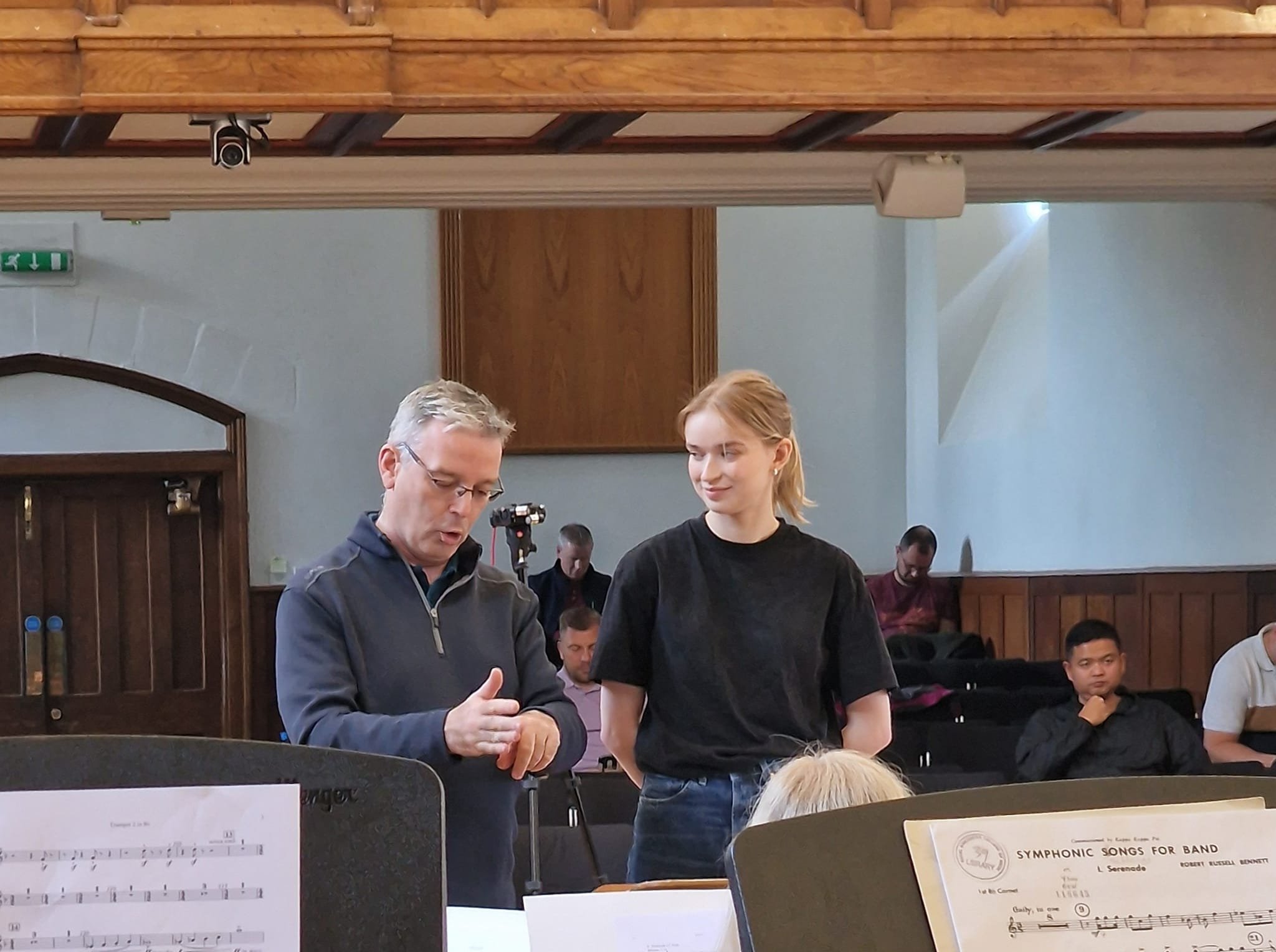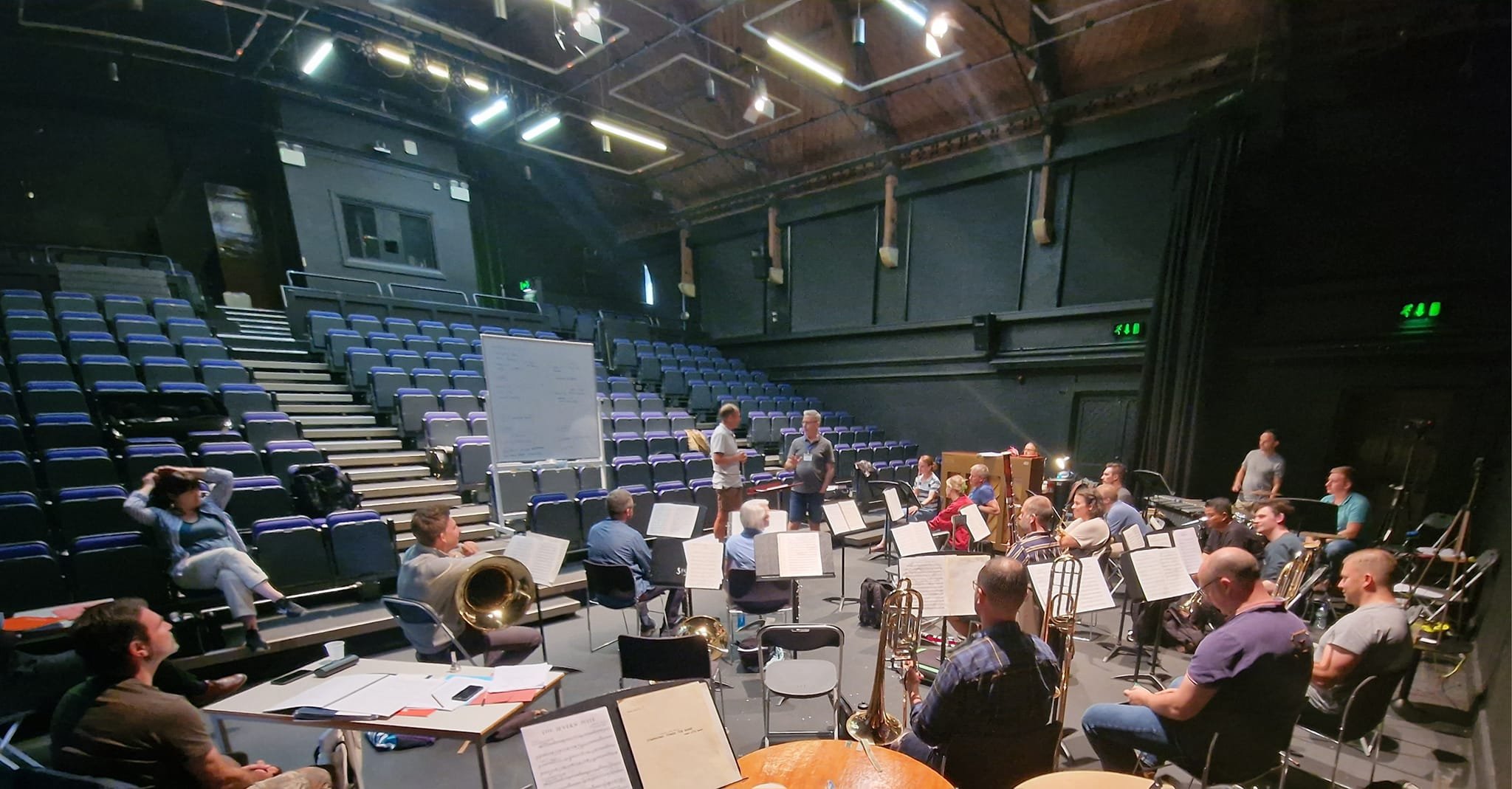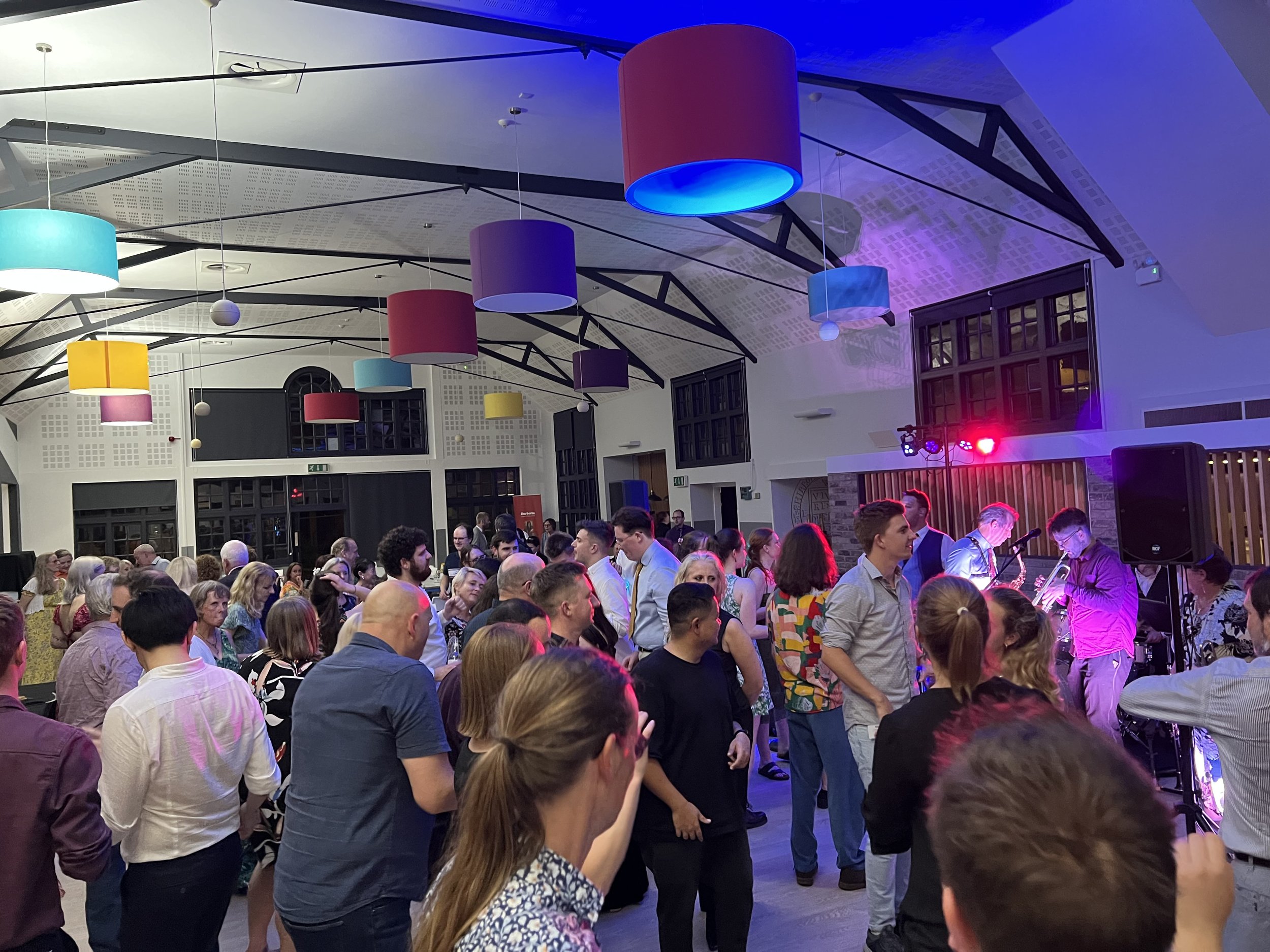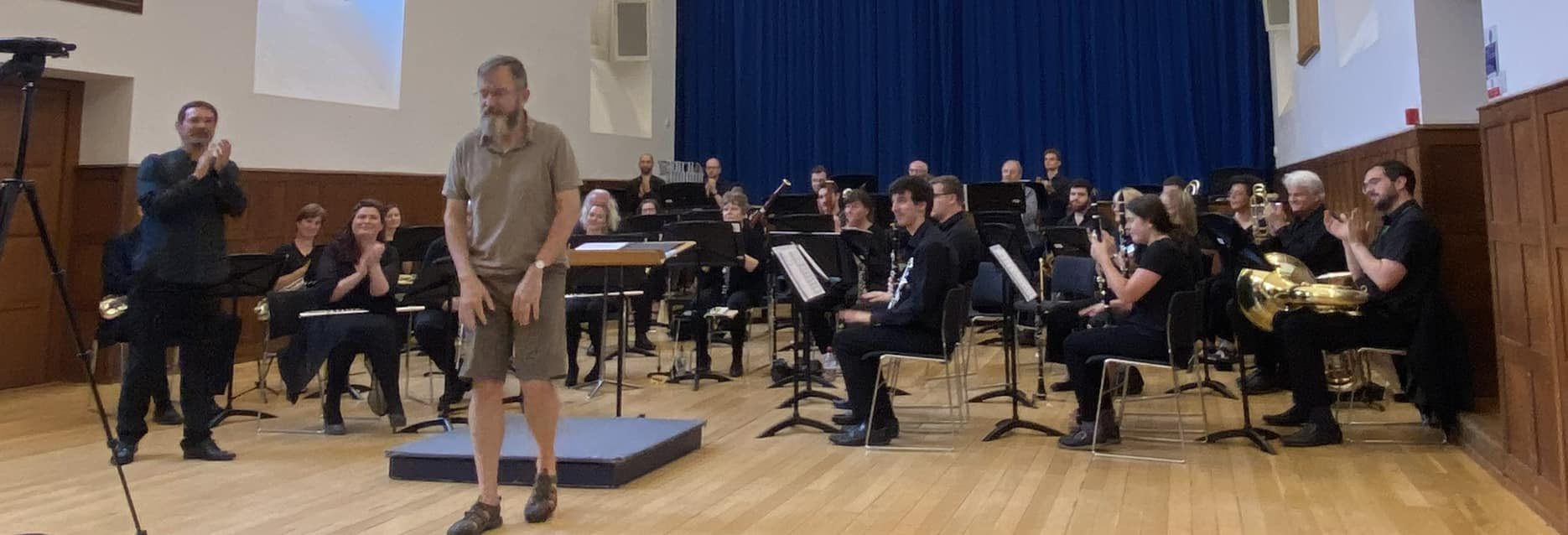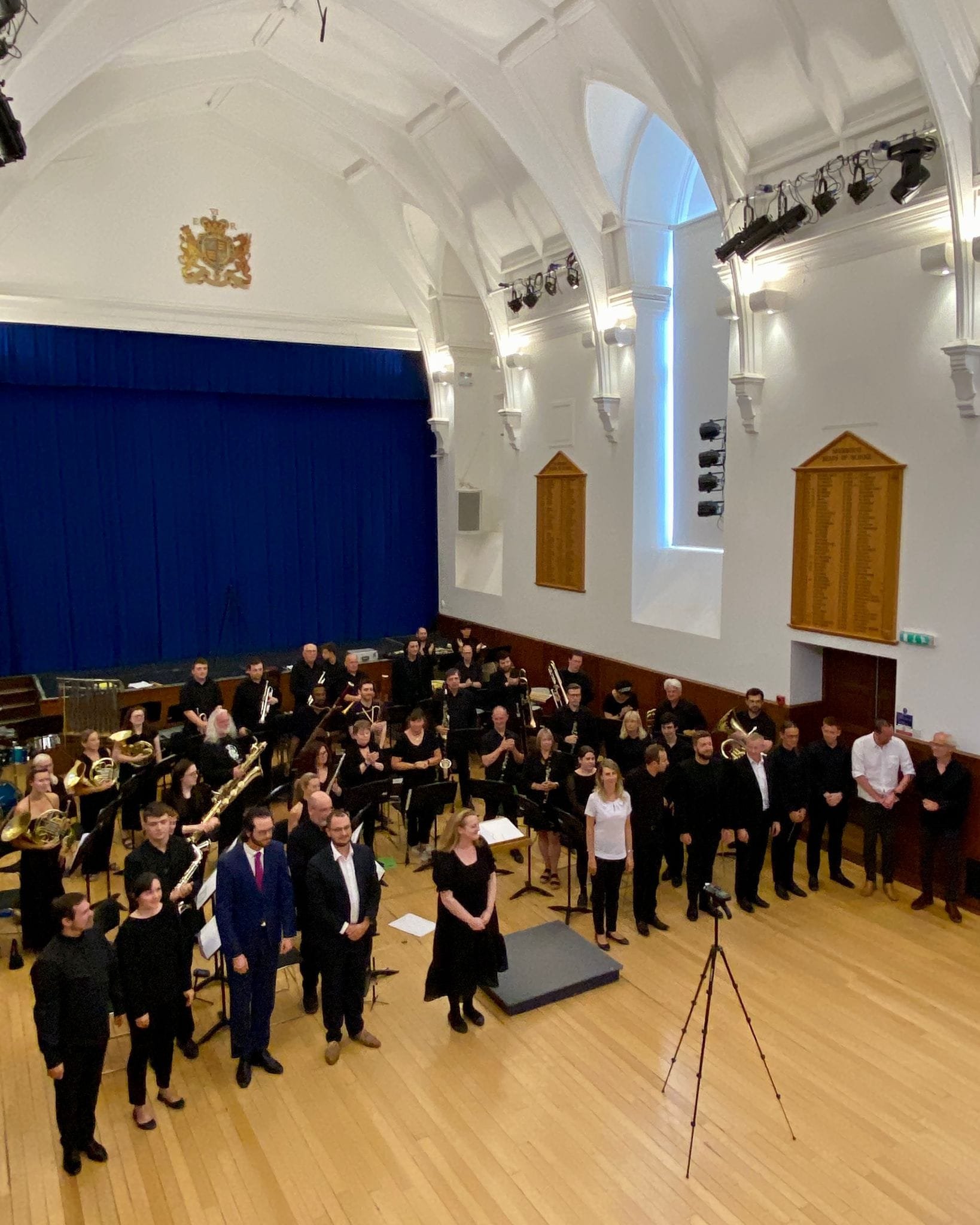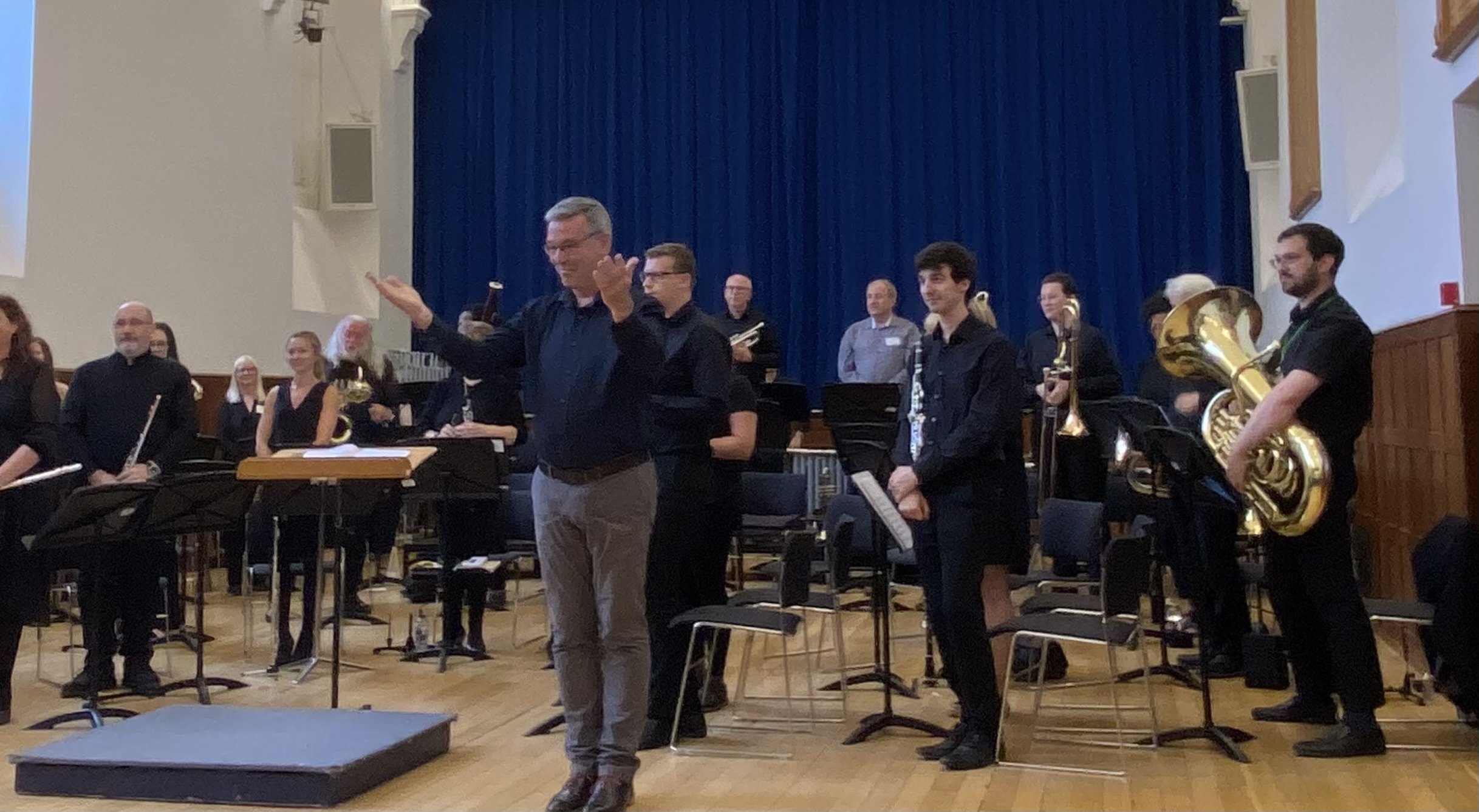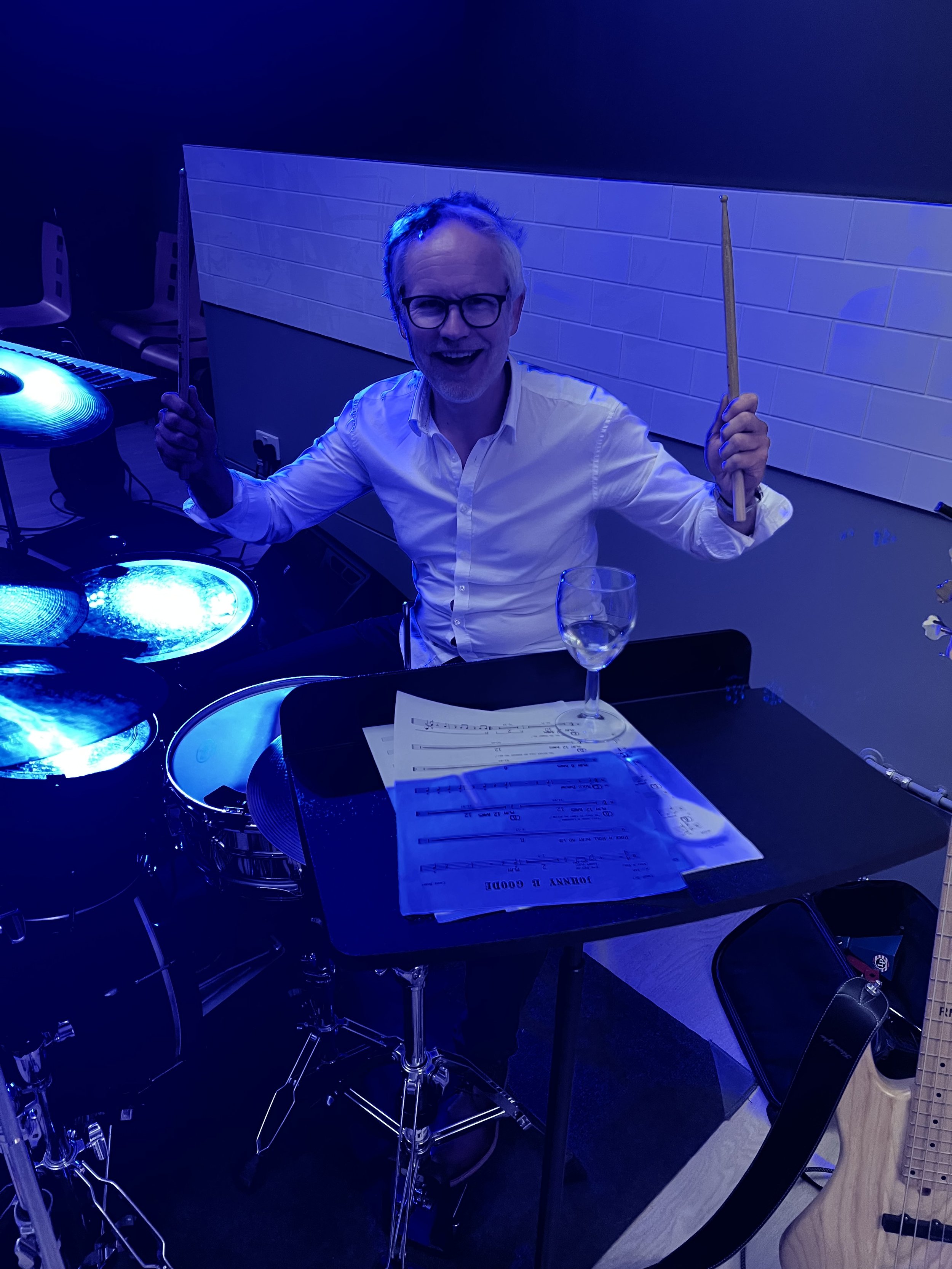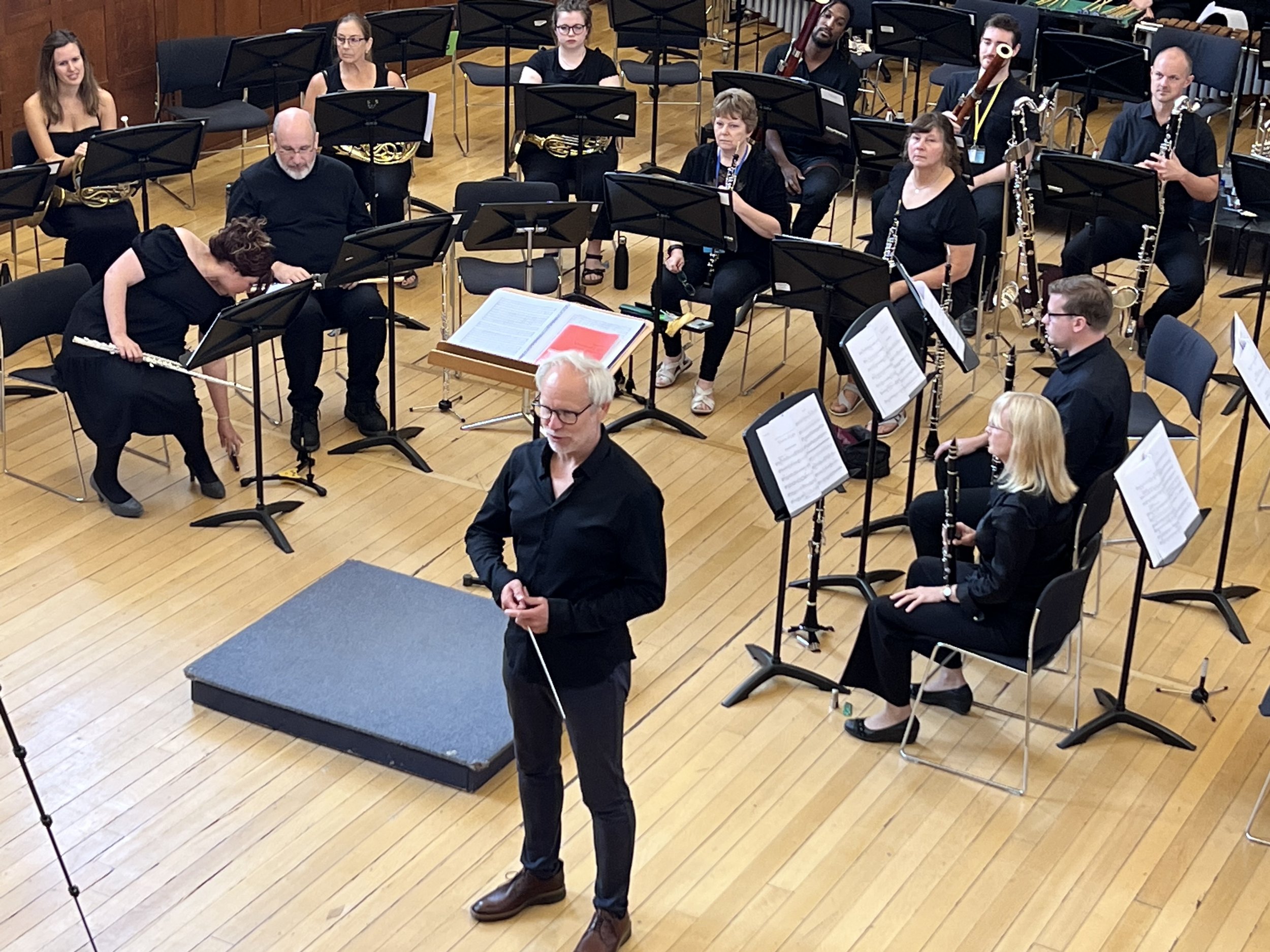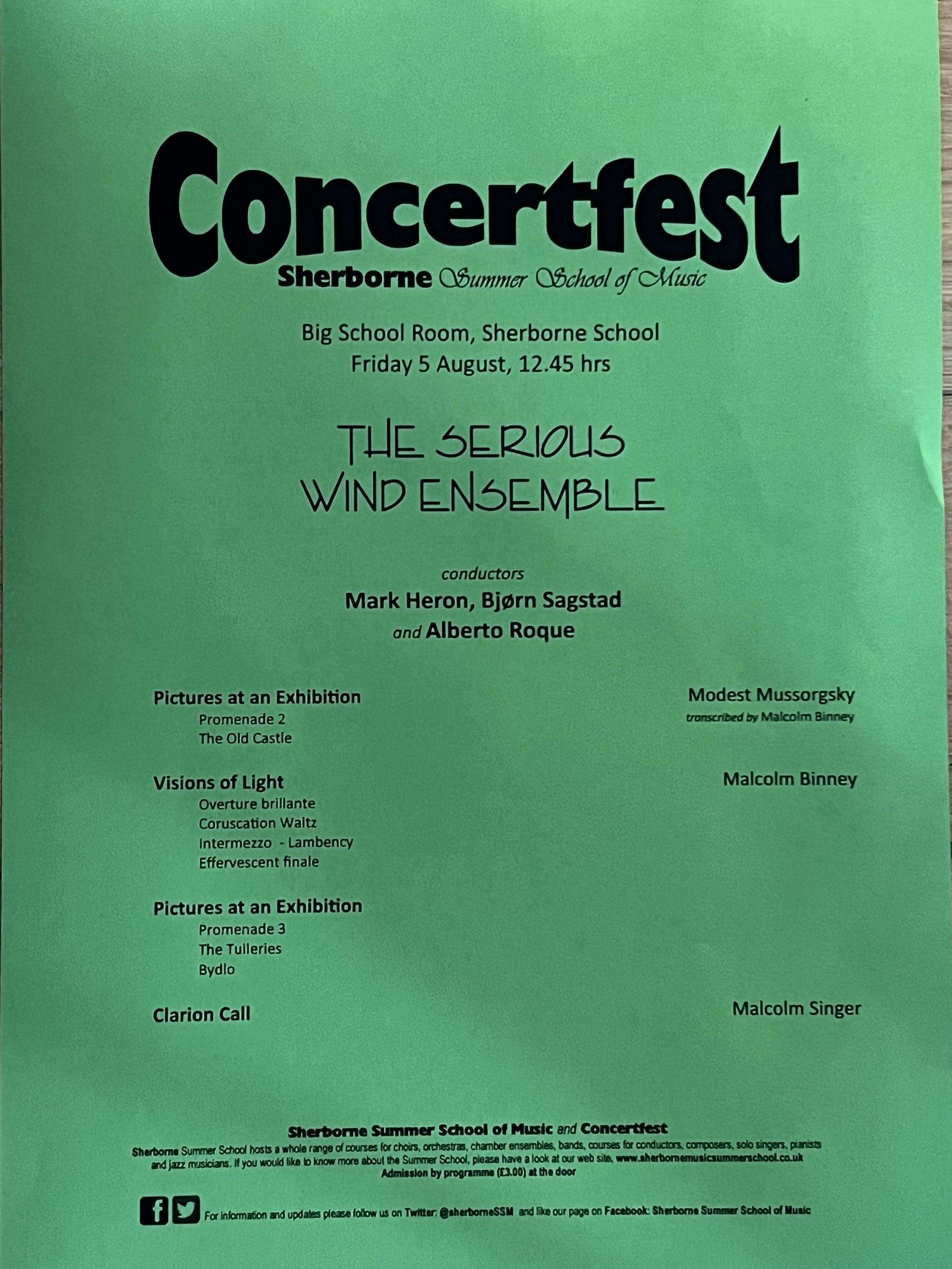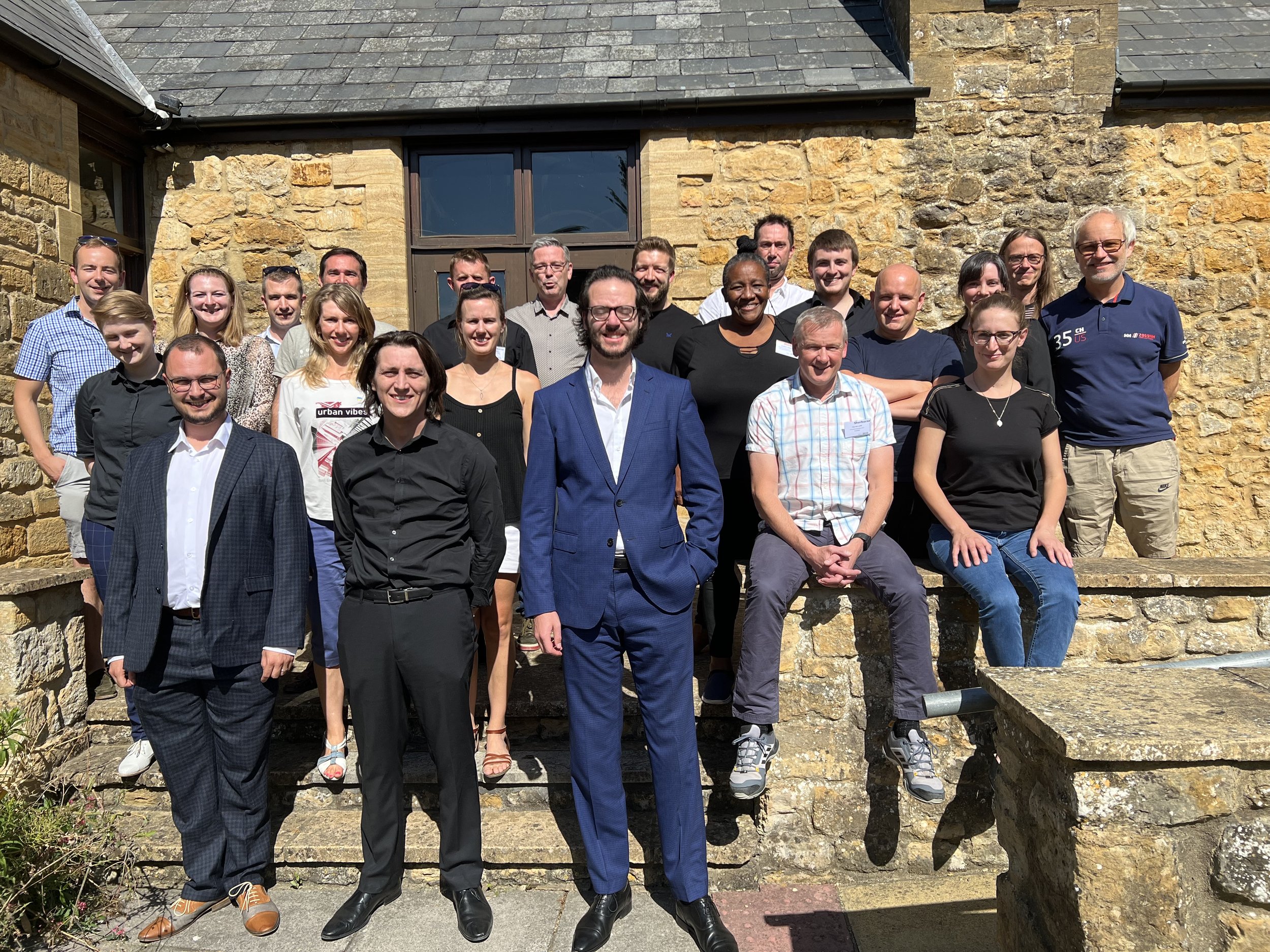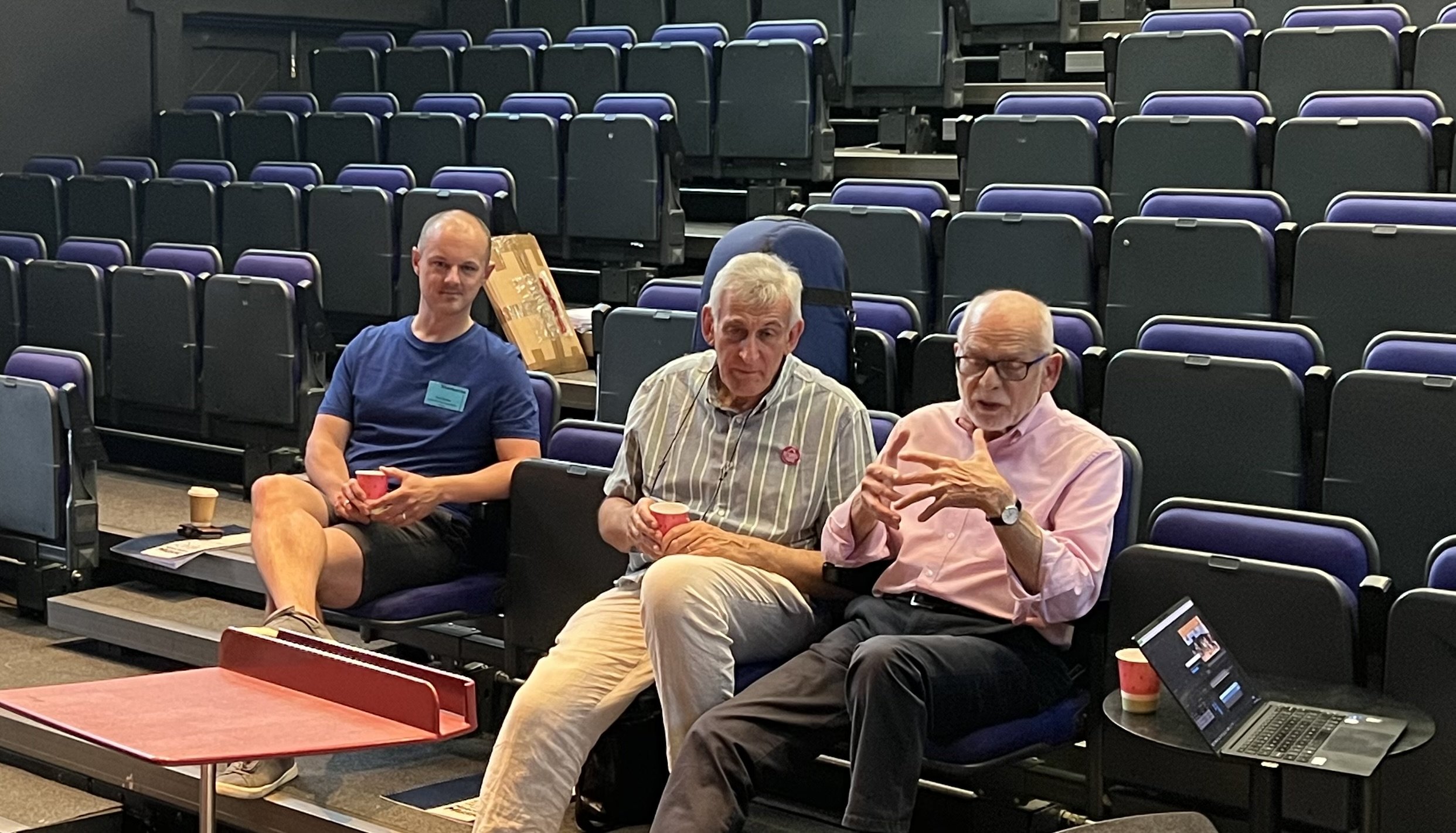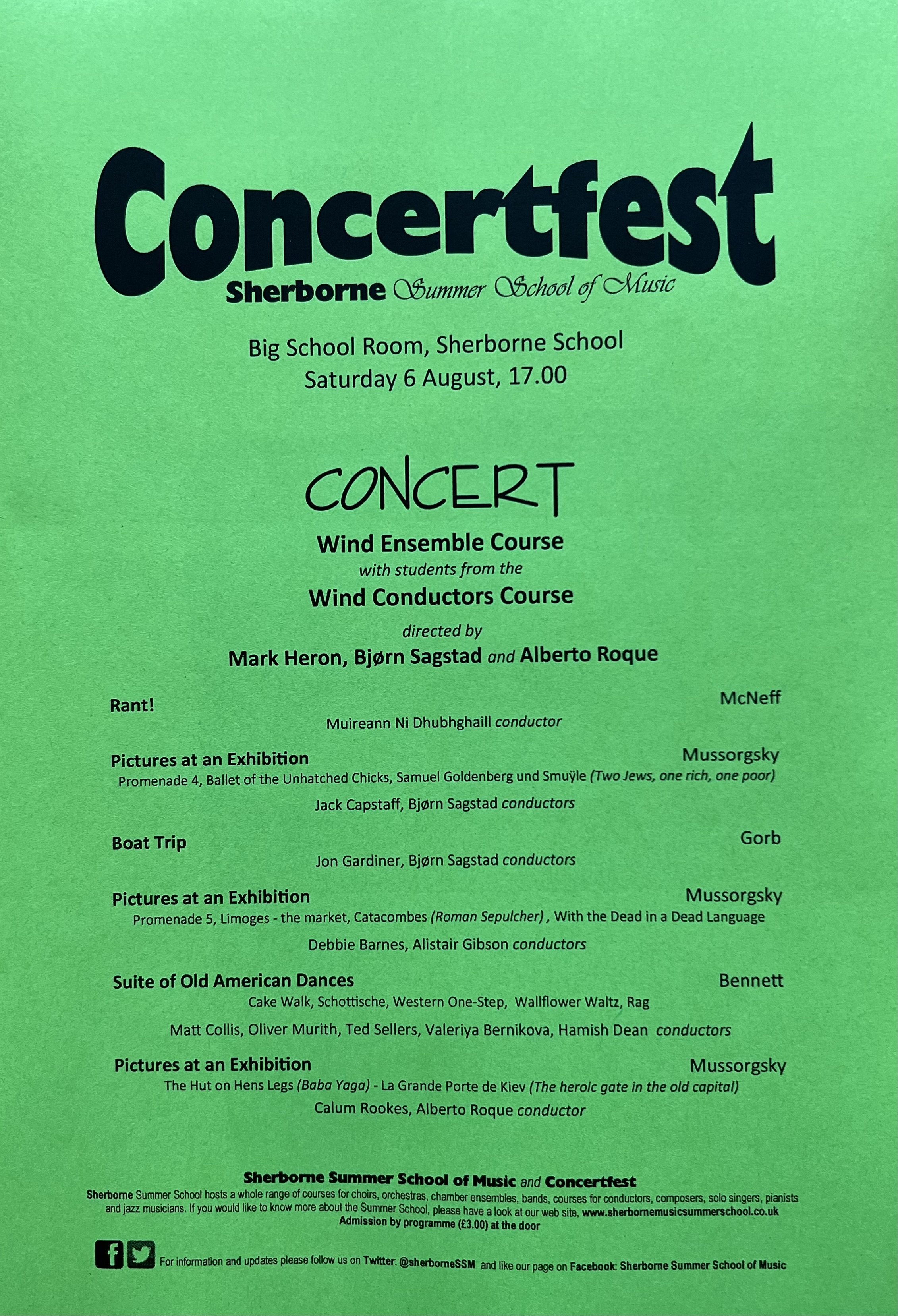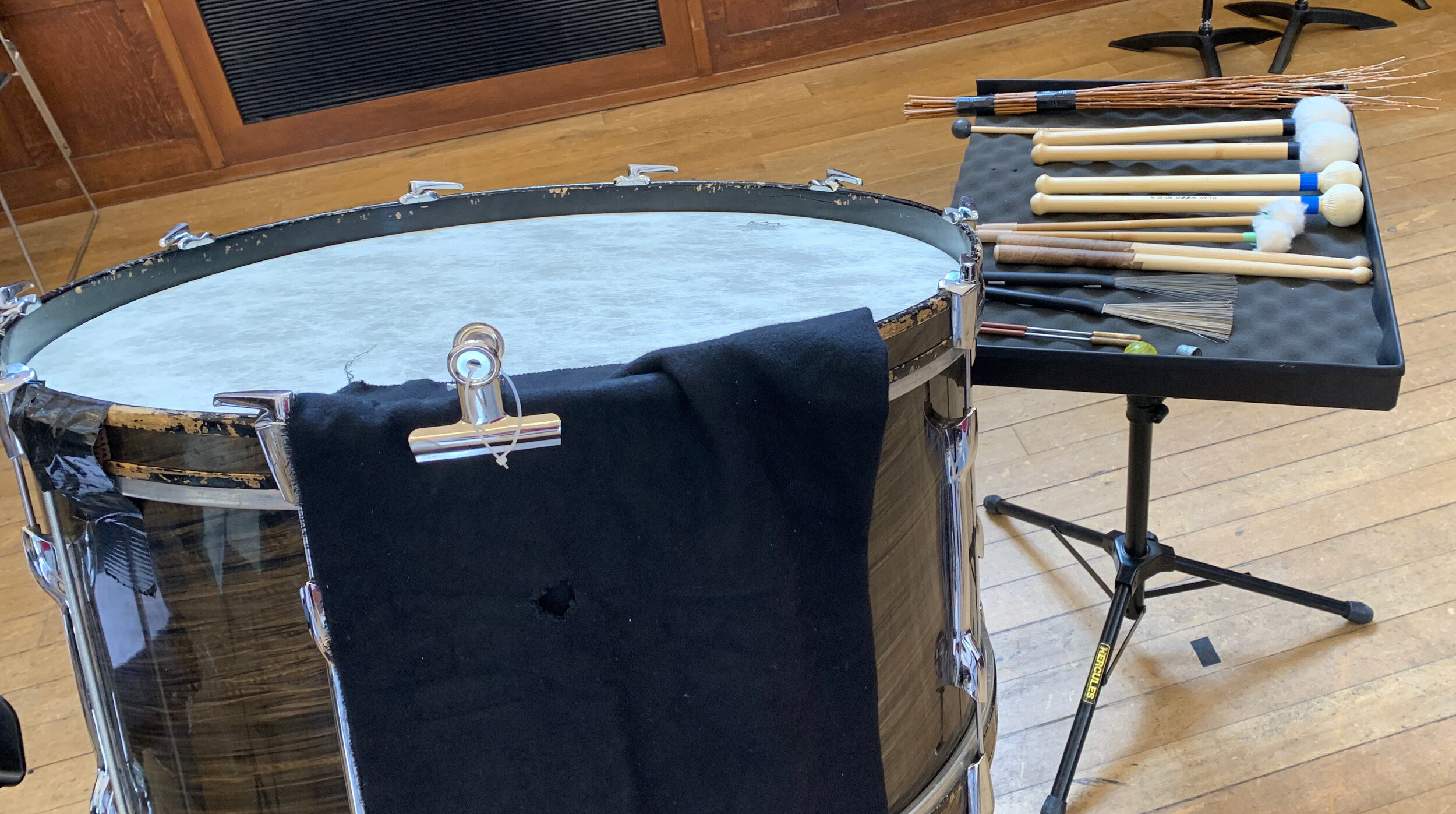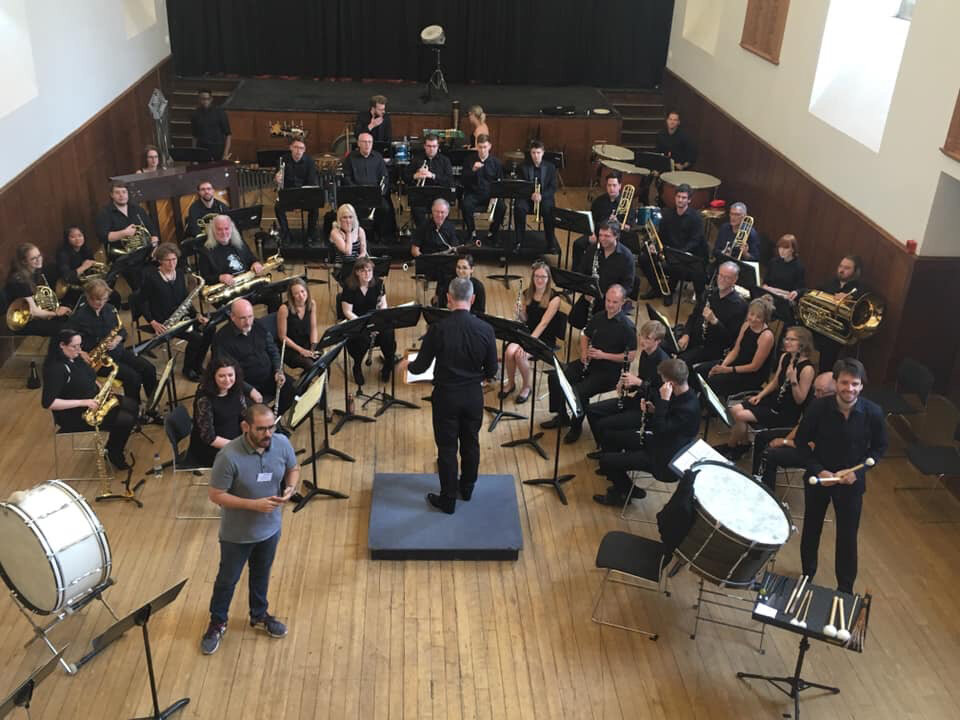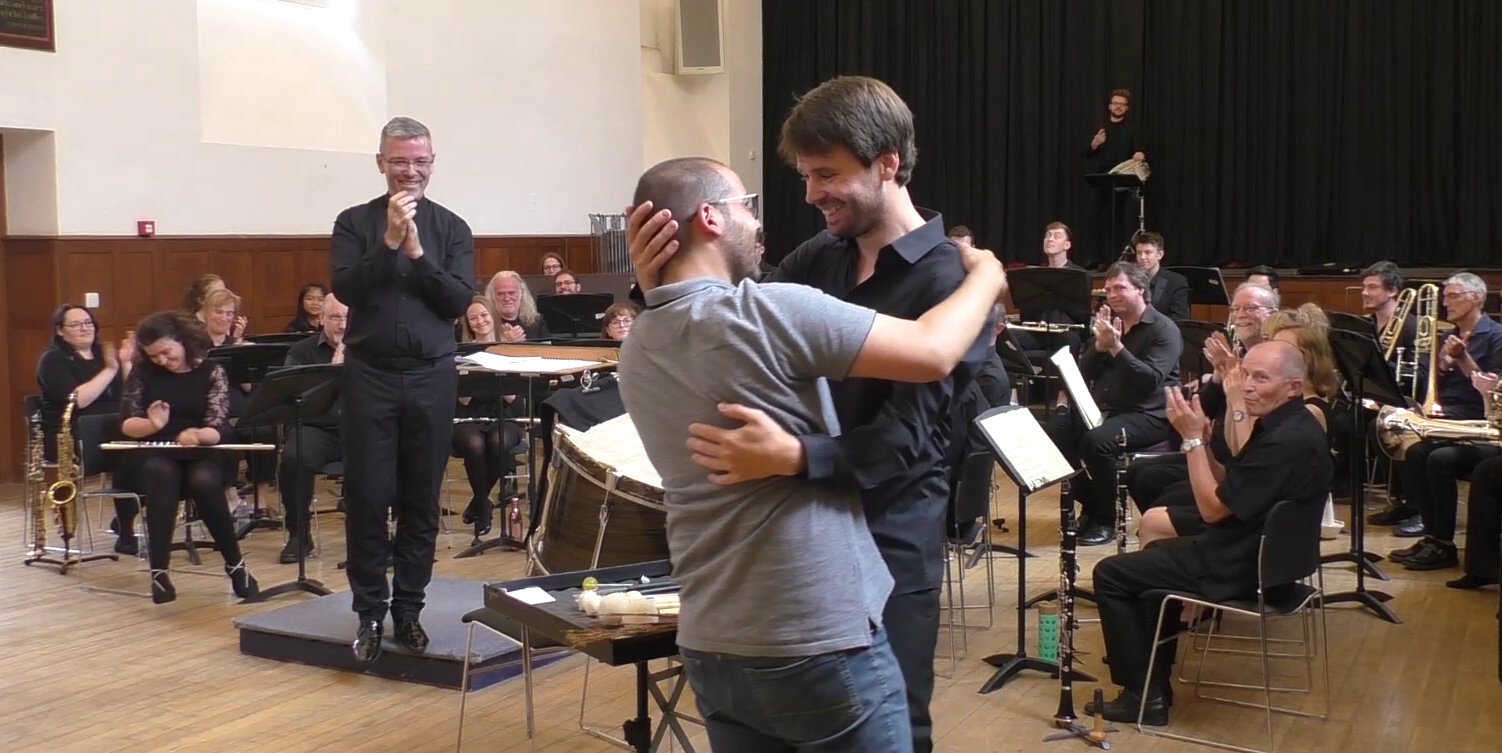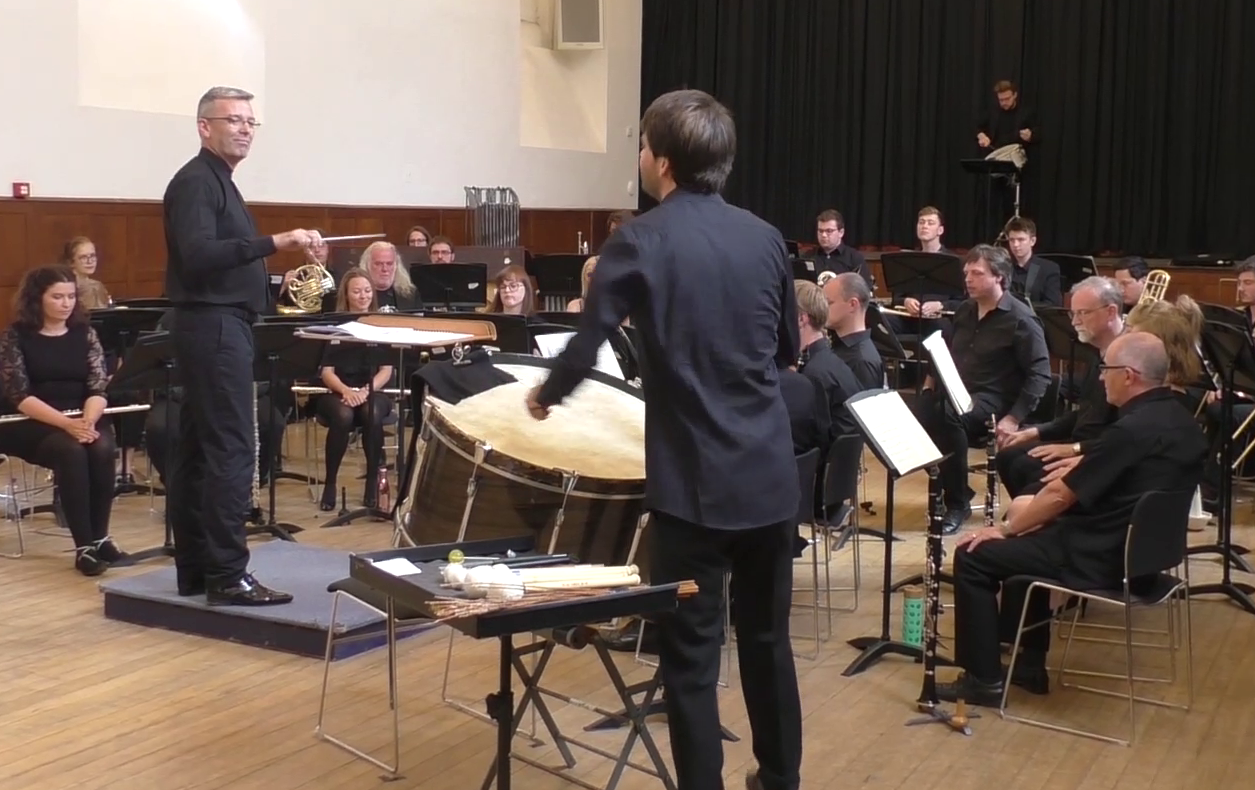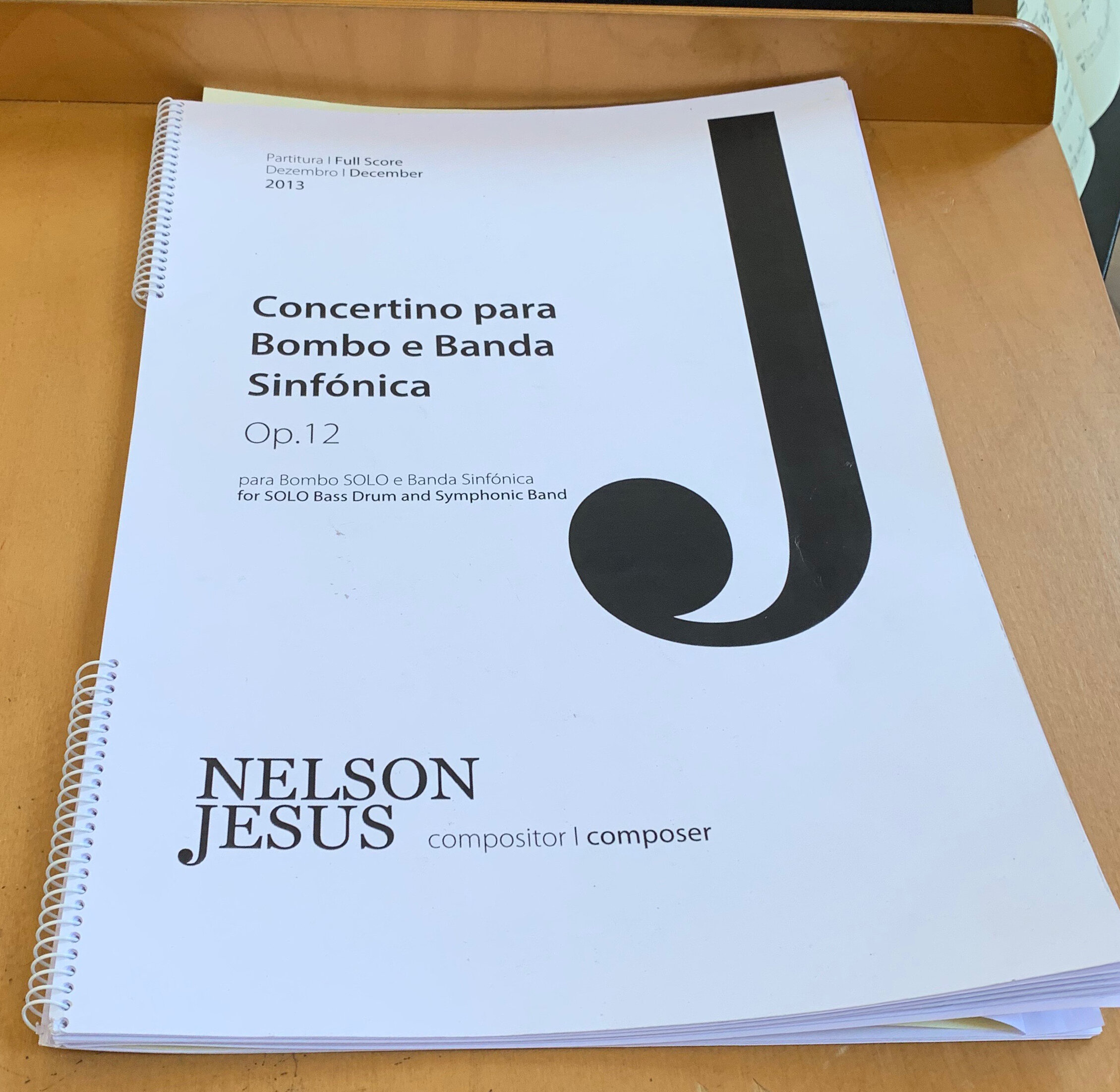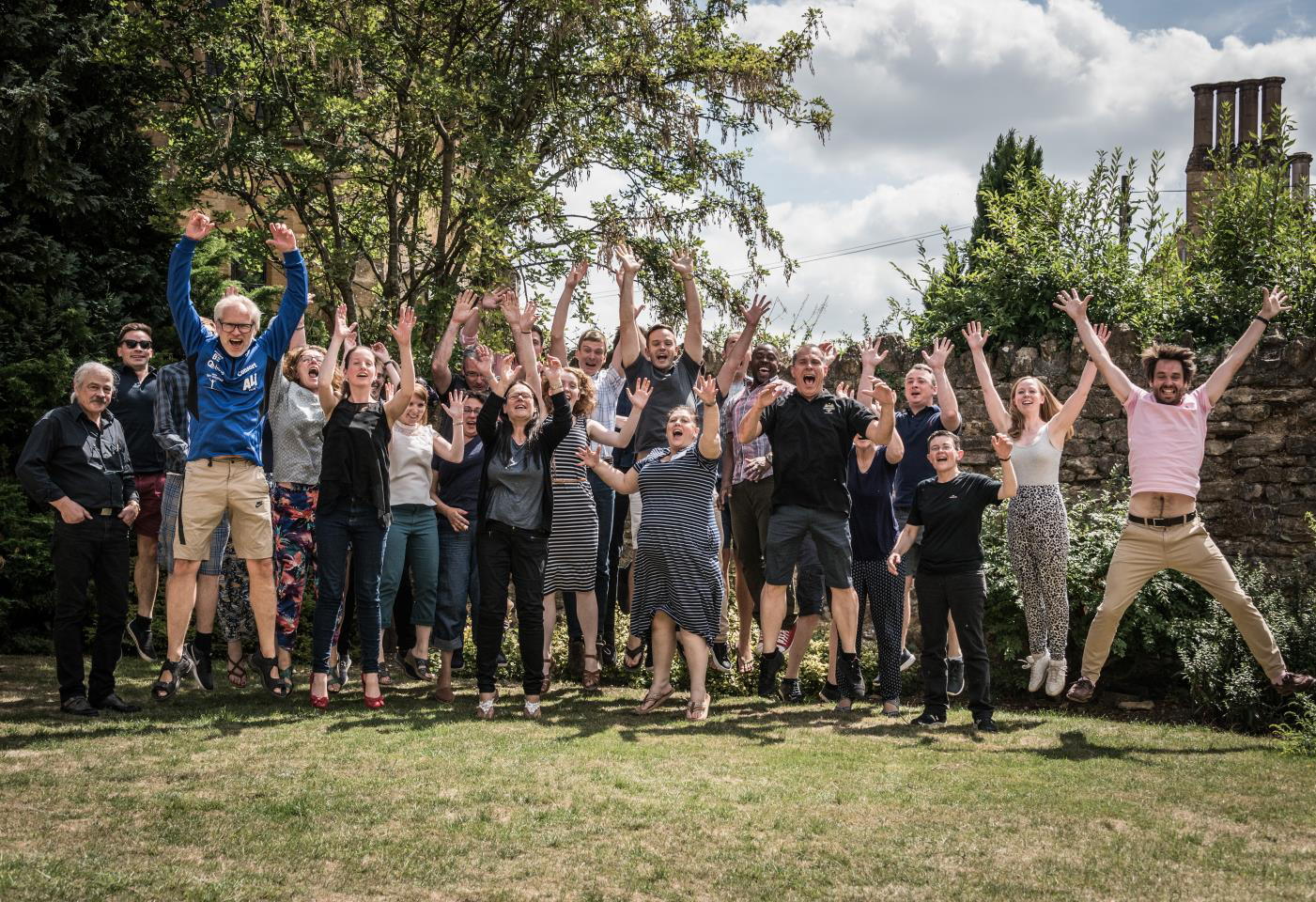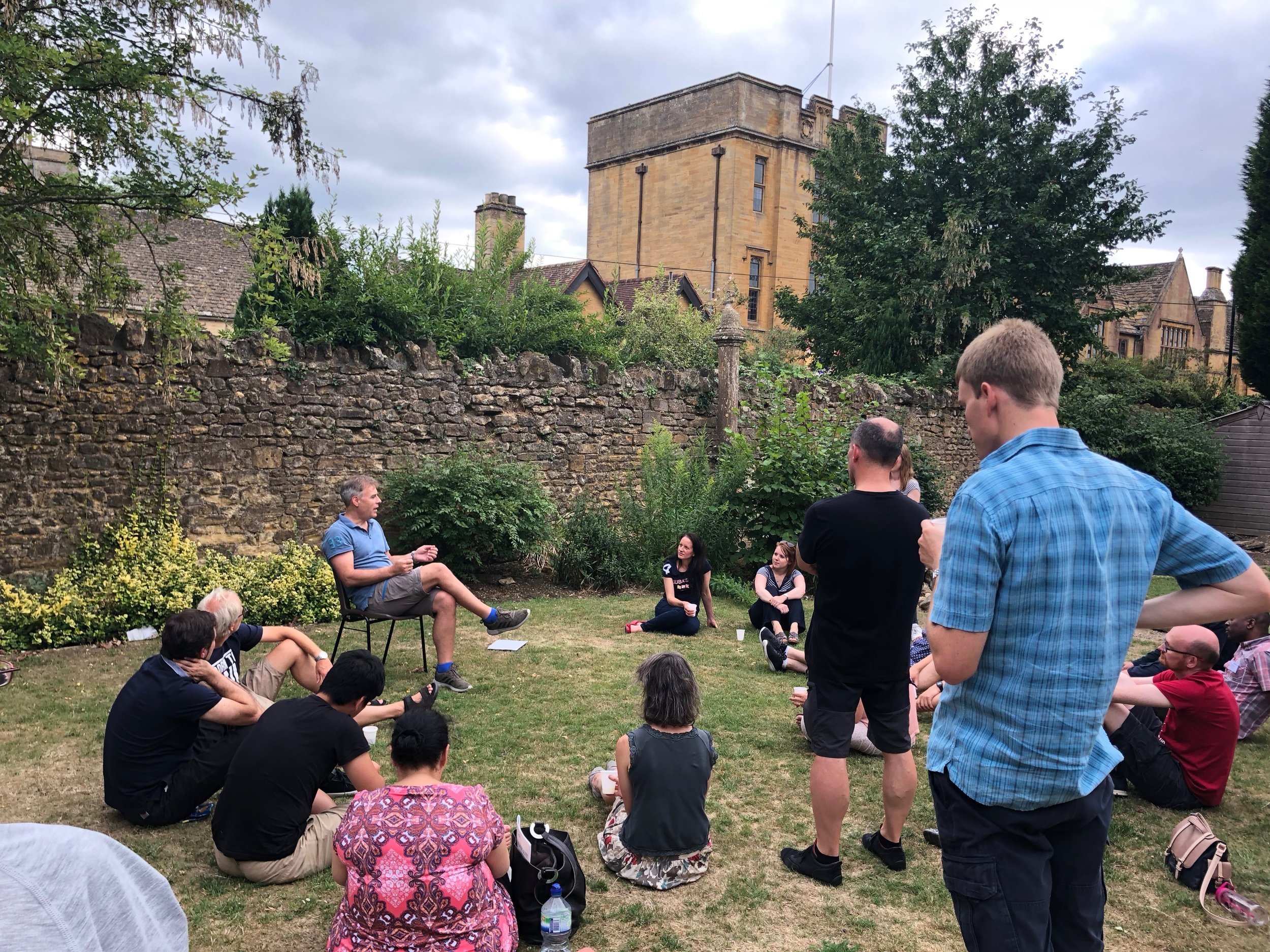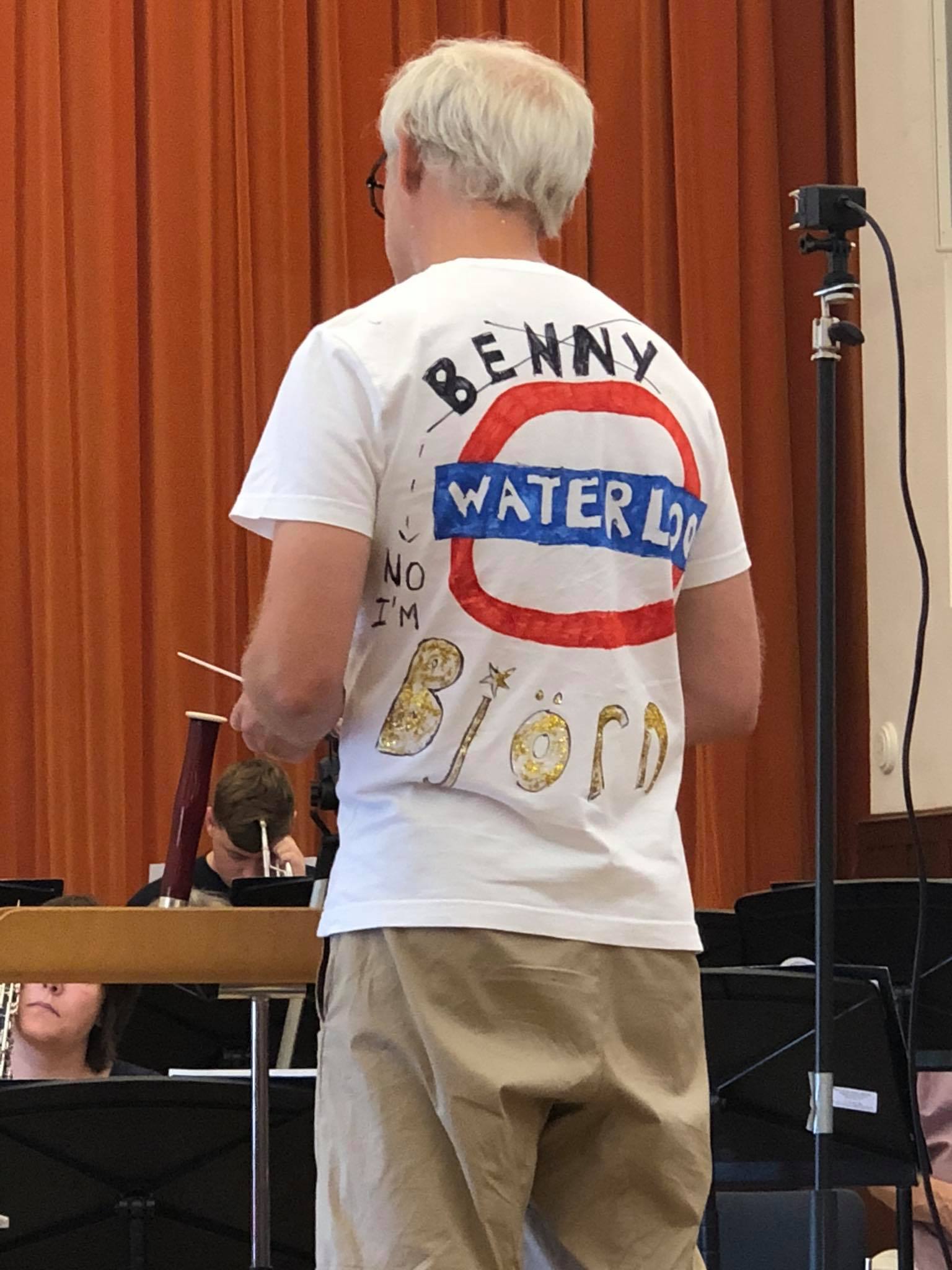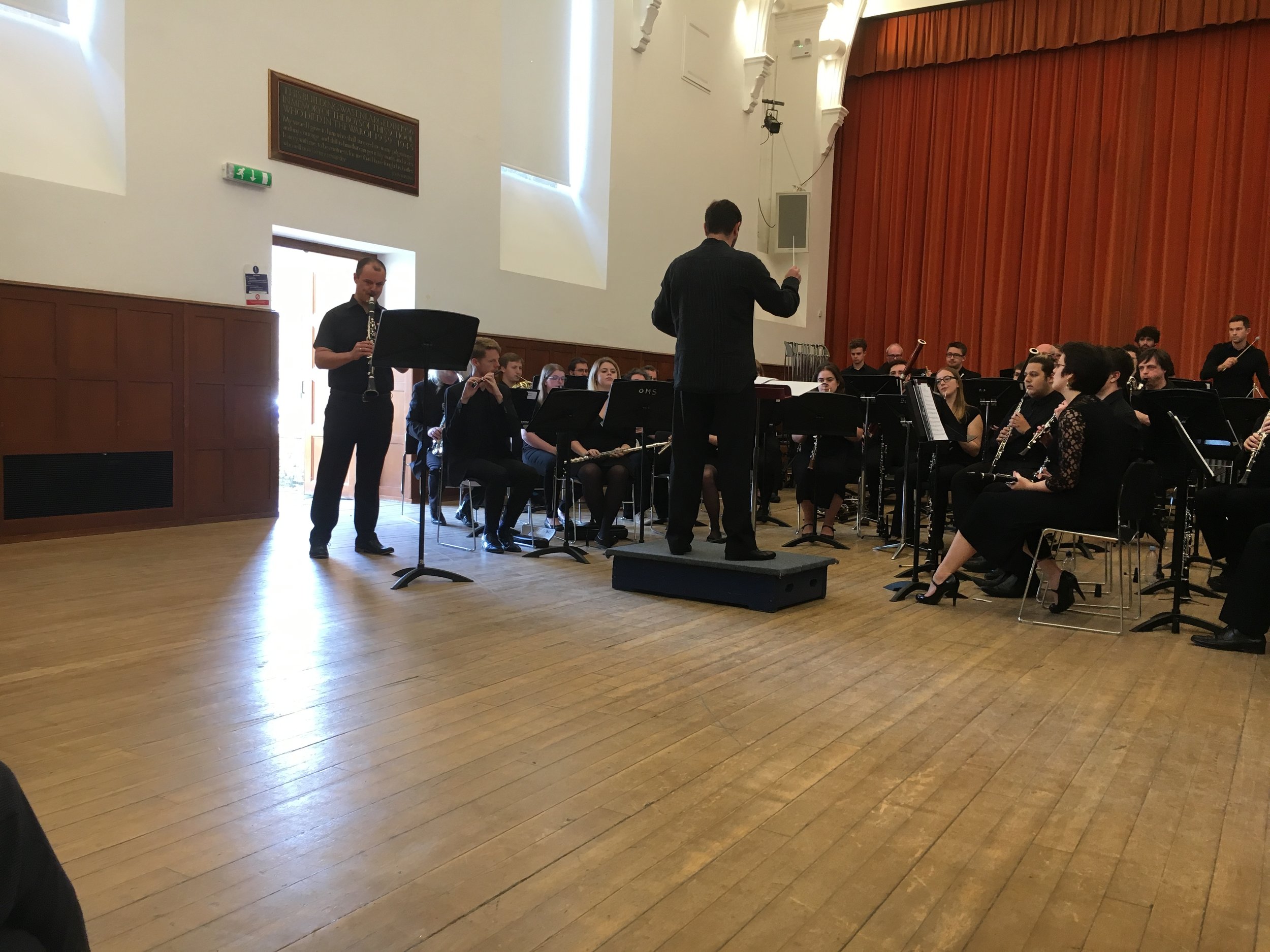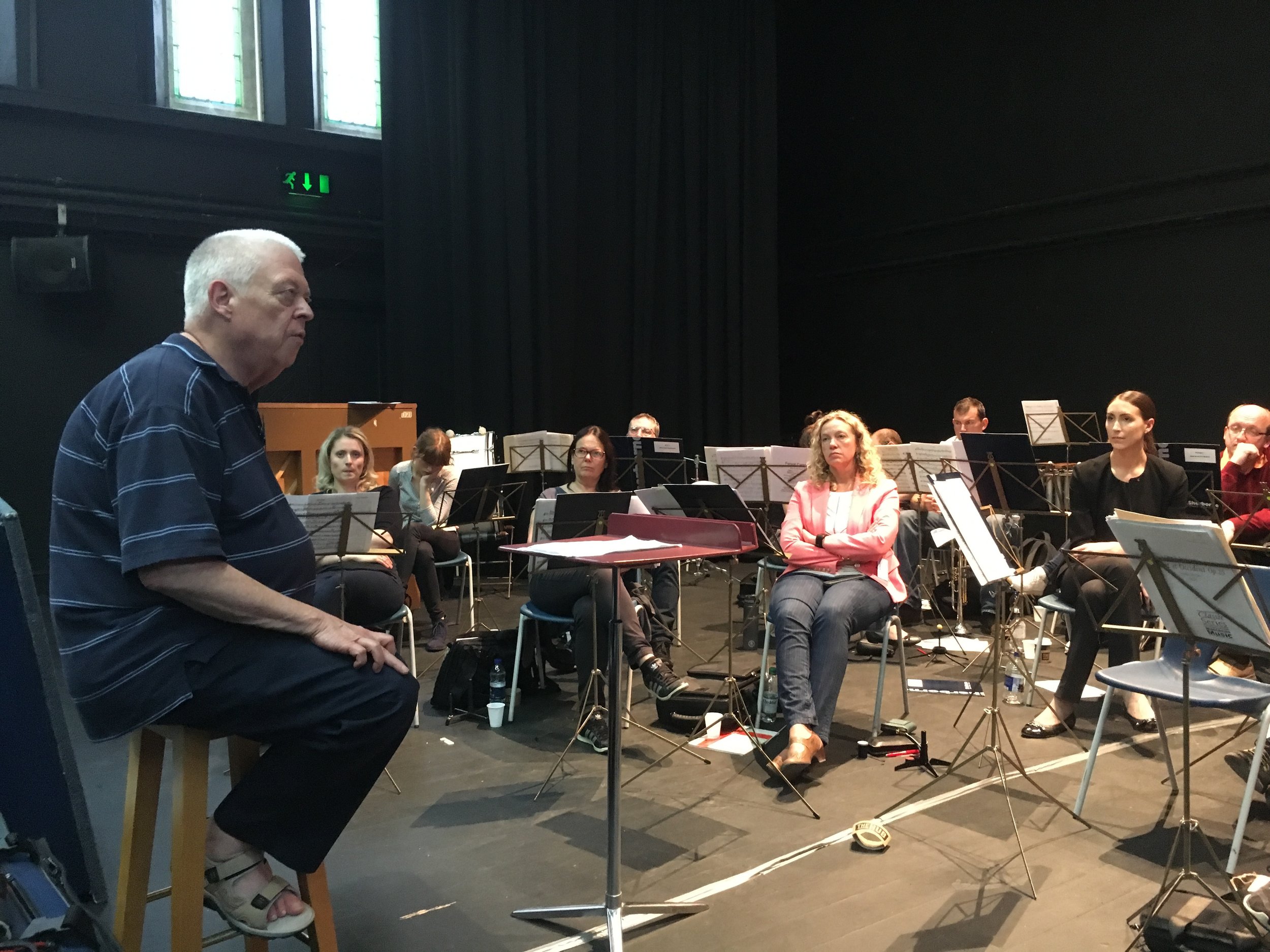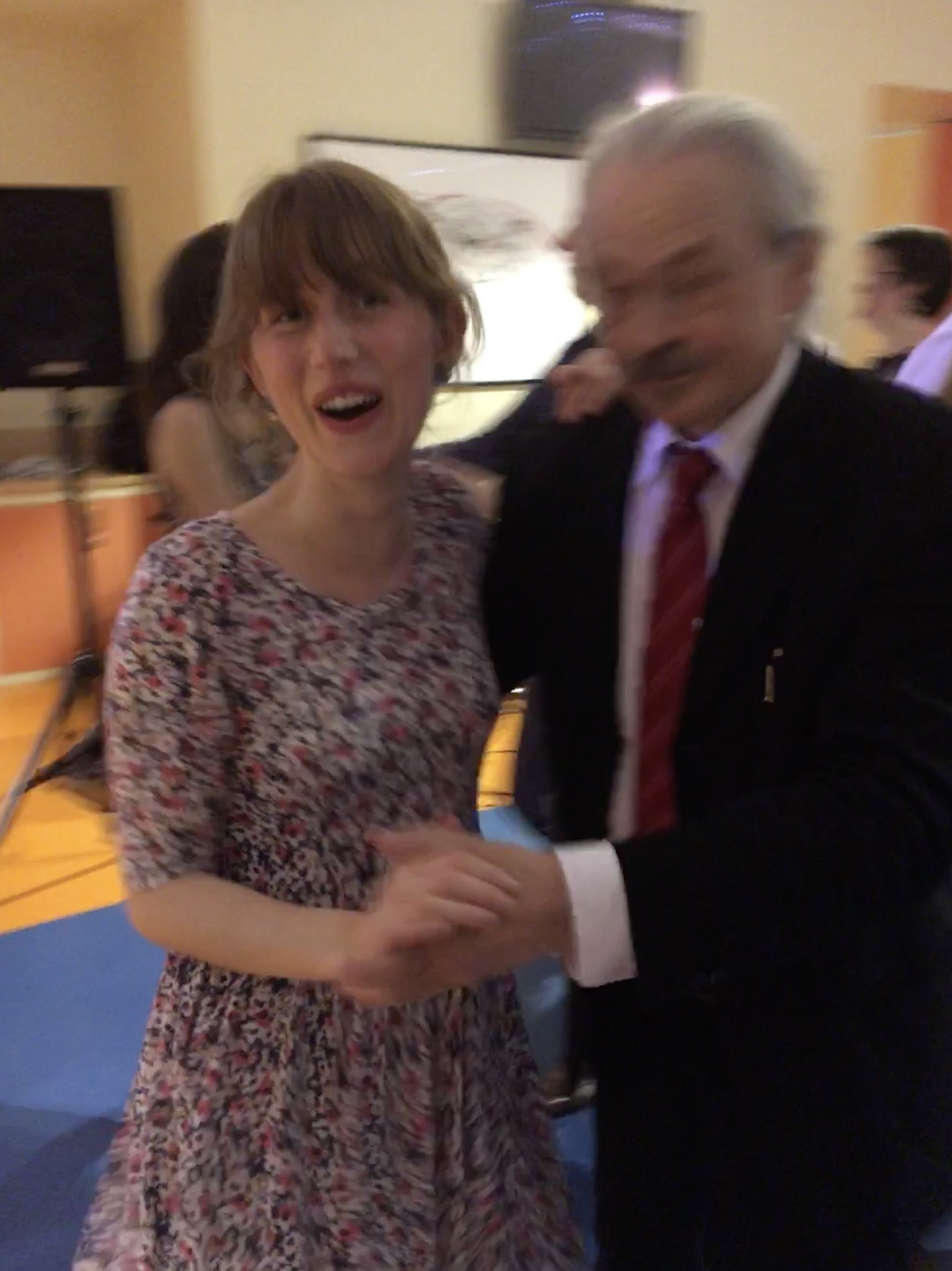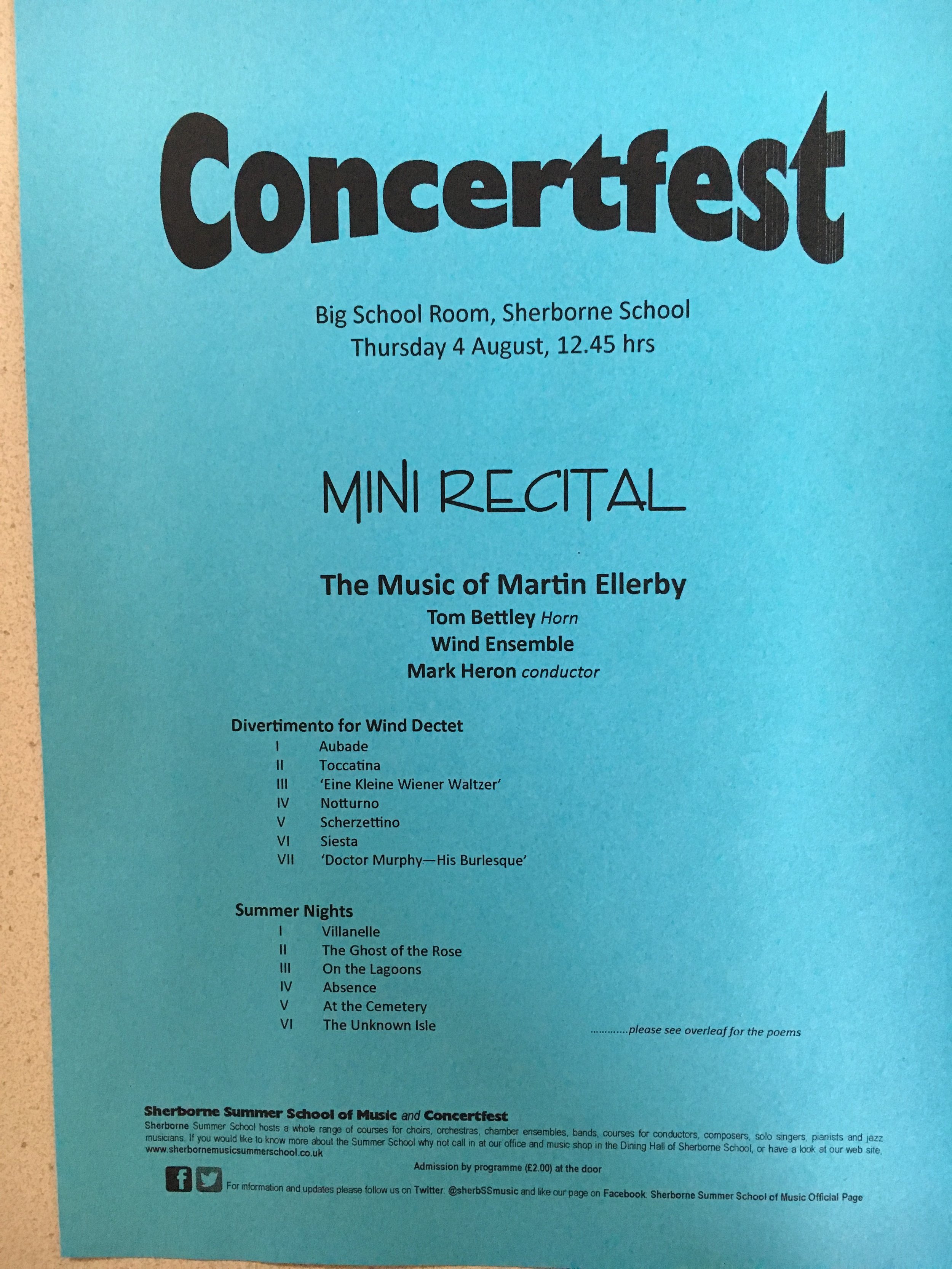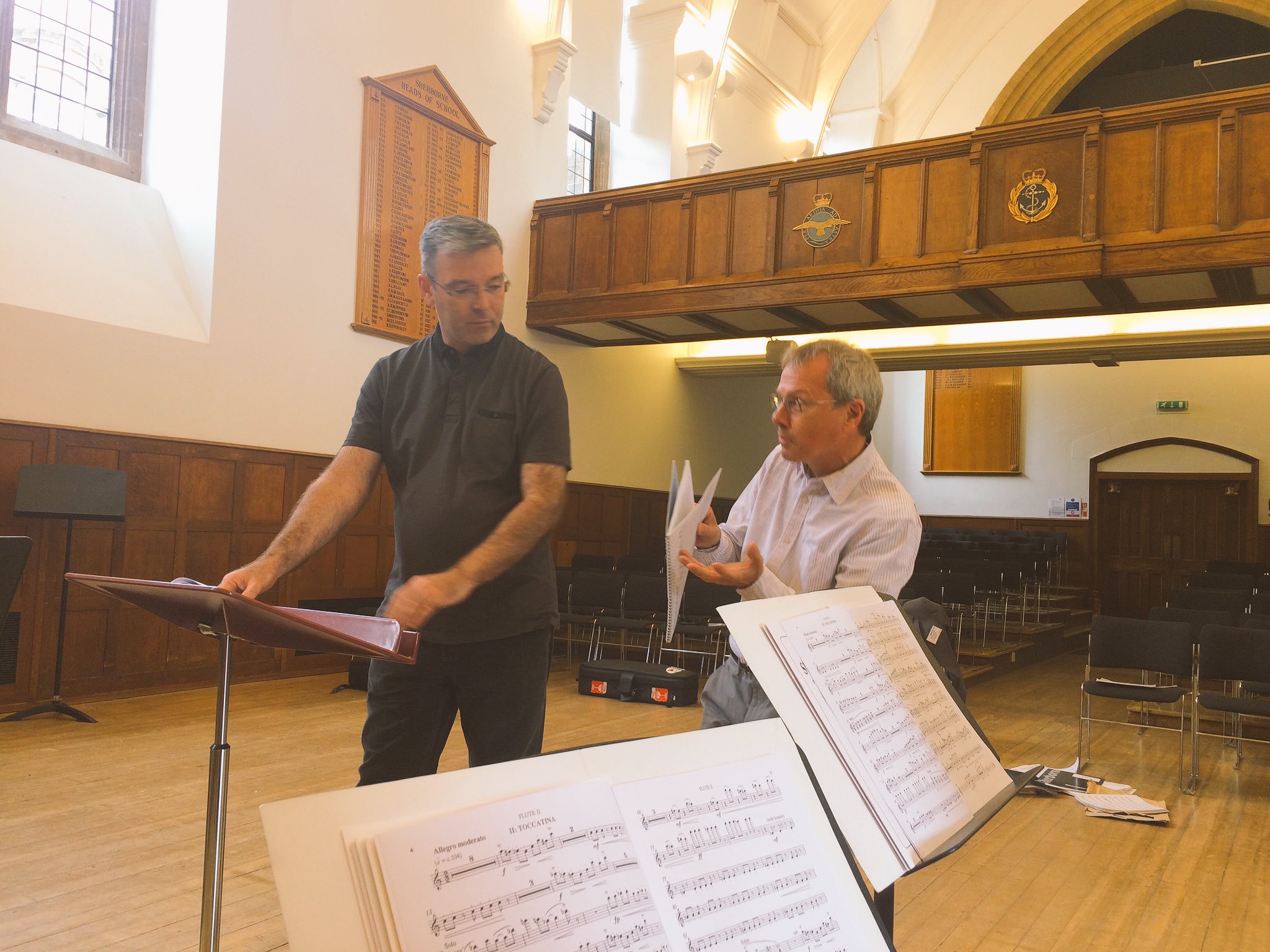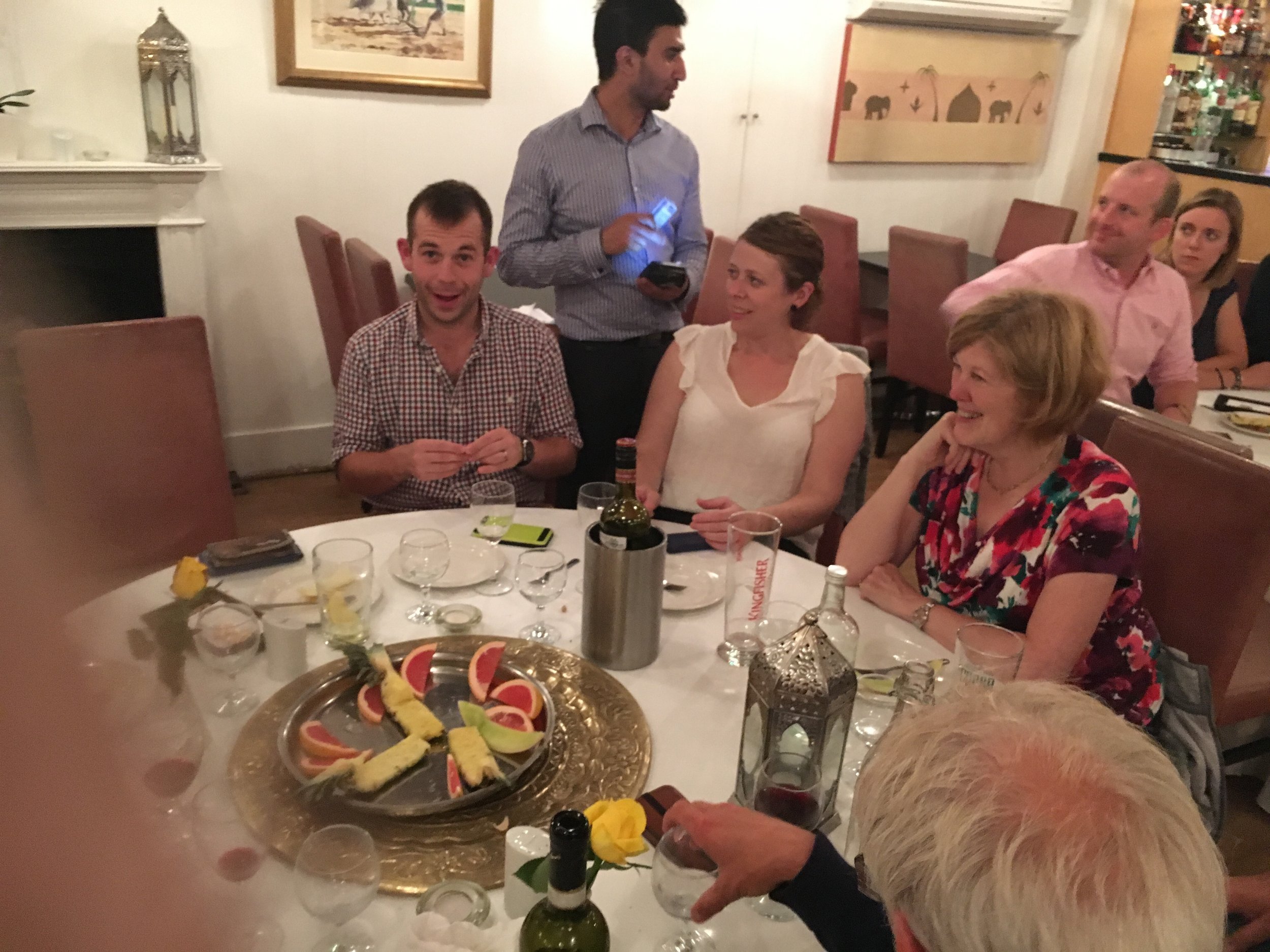SHERBORNE SUMMER SCHOOL OF MUSIC
27 July - 2 August 2025
The 2024 Conducting Class
This internationally recognised course is for conductors at all levels with an interest in wind repertoire, or a desire to immerse themselves in issues relating to conducting wind and brass instruments. Around twenty-five students will be accepted as active participants. Observers are also encouraged and will be fully involved in the course, but they will only conduct at the discretion of the tutors.
An integral feature of the course is that all active participants receive podium time with an ensemble each day and a performance opportunity at the end of the week.
During the final concert
Participants will explore the physical language of conducting, score preparation, rehearsal technique and repertoire knowledge. All conducting sessions are filmed and students receive videos of their work at the end of the week as well as regular review sessions during it. The course runs concurrently with the Wind Ensemble Course and there will be close liaison between the two including the opportunity for selected participants to work with that ensemble.
All participants should bring with them any instruments they play in order to accommodate ensemble work within the class. (If for any reason you are unable to bring your instrument(s), please let the summer school office know when you enrol). Students should, as a minimum, prepare thoroughly the works marked with an asterisk before commencement of the course. You may then wish to select further pieces from the remaining repertoire - it is usually more beneficial to know some of the music well, than all of it not so well. More experienced students may also wish to prepare works from the Wind Ensemble repertoire list.
“It’s three weeks after the Sherborne Wind Conducting Course and I hope that you are all doing great! At this moment I am still processing all the information and inspiration I received from the three of you and all the participants in the course. What a chance to meet so many nice people together at the same time.
The things that I remember strongest are the great atmosphere which made it possible to learn a lot; acceptance, trust and openness; the calmness in approach; and always working from what the music tells.
Thank you for proposing this repertoire, what a great chance to get to know material that is in my country fairly uncommon. The chance to work with the wind ensemble course was also very valuable for me; so different from the big wind orchestras in my country.
Since I still don’t know how to sum everything up (too many enthusiastic ideas in my head…) I just want to thank you for making it such a great course and then even adding some nice wine time and the Digby Tap!
”
There are four sessions a day. Free concerts every evening and most lunchtimes. Podium time every day. Midweek formal dinner and dance. Sherborne School is set in one of the loveliest old Dorset towns and has a swimming pool and sports facilities, bar and local pubs.
WASBE will offer a partial scholarship to one conducting student participating in the course. Details will be confirmed shortly.
To apply for the course, follow this link.
Faculty
Joining me this year are Bjørn Sagstad and Agata Zając. We also welcome Stephen McNeff as composer-in-residence, Adam will bve present for the second half of the week.
“I wanted to say how much I enjoyed the course. It’s impeccably run, with a logistical precision the army simply couldn’t match.”
Repertoire
Conducting course
Stephen McNeff Monsters
Martin Ellerby Paris Sketches
*Malcolm Binney Emerald Breeze
Jennifer Jolley Lichtweg/Lightway
*Stephen McNeff Ghosts
*Gustav Holst Suite No.1 in E flat, Op.28, No.1
Dan Baczkowski The Experience of Jamie
Percy Grainger ed. Fennell Lincolnshire Posy
Richard Strauss Serenade in E flat, Op.7
Wind Ensemble
Stephen McNeff Monsters
Stephen McNeff Ghosts
Stephen McNeff Moving Parts
Jennifer Jolley Lichtweg/Lightway
Jennifer Jolley Protector of the East Sea
Martin Ellerby Paris Sketches
Dan Baczkowski The Experience of Jamie
Percy Grainger ed. Fennell Lincolnshire Posy
Richard Strauss Serenade in E flat, Op.7
WIND ENSEMBLE COURSE
Running alongside the conducting course, and sharing the same faculty, the wind ensemble course is designed for experienced amateurs and students to rehearse and perform significant repertoire written for the medium. Some of the repertoire will be studied in depth and form the basis for one or more of the several concerts the Wind Ensemble gives during the week. The remainder will be played in repertoire sessions. This year there are extended opportunities for large scale chamber music and there is close liaison with the Wind Conducting Course. BASBWE will offer a partial scholarship to one player participating in the course.
“I really thought it was a fantastic week - I thoroughly enjoyed every minute and I’m extremely grateful for all of the advice, help and support you all provided to me and for all of the valuable learning points you highlighted whilst others were on the podium too. It was an excellent group of people to spend time with and the variety of repertoire was really interesting and challenging. ”
2024 Review
26 conductors from the UK, Ireland, Netherlands, South Africa, USA, Switzerland, Poland and Italy joined us for a fantastic and very sunny, vintage Sherborne week
Adam Gorb was with us as composer in residence, and as well as his own Yiddish Dances, Pikes Peak, Tranqullity, and Over Hill, Over Dale, we featured several former RNCM students of his, all of whom have made significant contributions to the repertoire: Matthew Brown, Fergal Carroll, Willie Chester, Leo Geyer, Pete Meechan, Jenni Watson, and Helena Zsyskowska. Check out their music! What a legacy Adam has created during his time as Head of Composition at the RNCM.
2023 REVIEW
An oustanding crop of 23 conductors from from UK, Ireland, Norway, Netherlands, Russia, Italy, Singapore, Switzerland and Poland worked on fantastic repertoire, including the world premiere of 10 Sketches After Lowry by Paul Vowles, commissioned by Mark Heron as a suite of miniatures suitable for a conducting course and therefore premiered by 10 conductors! Available now from Maecenas Music!
The repertoire also brought female composers to the fore, with 2 major pieces by Judith Bingham and works by Lucy Armstrong and Ruth Gipps.
As always, the cameraderie, mutual support, and fantastic social aspect to the course were a huge factor in its success. It really is not like any other conducting masterclass!
2022 REVIEW
After two years of cancellation due to the pandemic (although we did an online edition in 2020) it was wonderful to be back in Sherborne with 22 conductors from all over the world. The repertoire was broadly as had been planned for 2020: showcasing composers with a Sherborne connection. We gave the world premieres of Tainted Beauty: Persephone’s Story by Paul Vowles, and Clarion Call by Malcolm Singer. Both Sherborne institutions! It was great to also feature Director of Music, Malcolm Binney with his Visions of Light, and orchestration of Mussorgsky’s Pictures at an Exhibition. As 2022 marked the 70th anniversary of Sherborne Summer School (Canford as it was originally), it was great to feature these composers.
2019 REVIEW
25 conductors from all over the world worked with a very high quality wind ensemble on a wide variety of repertoire. Composer in residence Nelson Jesus was present for the whole week, and his Concerto for Bass Drum and wind orchestra made a particular impression in a wonderful performance by Nicholas Reed.
2018 REVIEW
A bumper crop of 27 conductors from UK, Norway, Switzerland, Australia, USA, Canada, Italy and Jamaica enjoyed what was by common consent perhaps the finest edition of the course. Composer in residence Torstein Aagaard Nilsen’s contribution was a key factor in this - the quality and variety of his music was hugely inspiring, as was his commitment to the process of rehearsing it, and working with the conductors. Lewis Musson, principal euphonium of the Central Band of the Royal Air Force was a fantastic soloist, and we were very grateful to the RAF Music Services for their support in making his appearance possible.
“Had a wonderful time at Sherborne! A fantastic conducting class with the most friendly and supporting people. And the very finest conducting teachers”
2017 REVIEW
A class of 25 conductors from all over the world worked with Mark Heron, Bjorn Sagstad and Alberto Roque. and composer in residence, Gary Carpenter.
2016 REVIEW
A class of 26 conductors from all over the world worked with Mark Heron, Bjorn Sagstad and a first time visitor to Sherborne, the Portuguese conductor Alberto Roque. Martin Ellerby was an excellent composer in residence and he was delighted by some outstanding performances of his music.
As always, the strong social element of the course was evident after hours.
2015 Review
The largest class we have ever had with 28 conductors. New to the faculty this year was Cynthia Johnston-Turner, Director of Bands at the University of Georgia, who entered into Sherborne's unique social vibe with alacrity!
2014 Review
A vintage year with 27 conductors from all over the world - 50% from the UK, 50% international. The cameraderie was as good as it's ever been, and the class contained graduate conducting students, professional military musicians, music education professionals, undergraduate music students from universities and conservatoires, and conductors of amateur bands & orchestras.
Adam Gorb joined us for the final 2 days of the course to participate in rehearsals of his new work, Bohemian Revelry, and to lead one of our 6pm seminars. As you can see, these sessions are not dull, dry affairs!
l to r: Bjørn Sagstad, Adam Gorb, Mark Heron, Russell Cowieson
The conducting students participated in 2 performances at the end of the week, members of the Wind Ensemble course also gave a concert conducted by the faculty members, and some of them also performed the Stravinsky Concerto for Piano & Winds with soloist Benjamin Powell. 2014 was my 8th year teaching the course, and I was again joined by Russell Cowieson and the renowned Norwegian conductor Bjørn Sagstad as a guest teacher following his great work with us last year. In Bjørn's opinion the course is the leading one of its kind in the world.
Some History
Twenty Years of the BASBWE/ Canford/ Sherborne Conducting Course
by Tim Reynish
It was during the BASBWE Executive meeting at the Glasgow Conference of 1990, that it was decided to co-operate with the Canford Summer School of Music (now Sherborne) in an annual conducting course in wind band and wind ensemble, The first BASBWE/CANFORD course in 1991 was given by Tim Reynish and Clark Rundell.
One of the unique aspects of Canford is the variety of courses on offer. For three weeks musicians of all ages; professional, amateur and student, participate in conducting, singing, choral singing, chamber orchestra, symphony orchestra, wind orchestra, string orchestra chamber music of all types, music technology, jazz and much more.
Alongside this heady mix, the Wind Orchestra and the Wind Orchestra Conducting Course have both forged their own identity. Over the years, the wind conducting course has evolved to become extremely international attracting high quality students from all over the world, many of whom are studying conducting at Masters or Doctoral level. Despite this, accessibility remains an important part of the philosophy and the class always contains a number of students whose main work is with community bands or who are coming to conducting for the first time through their work in music education. Another long-standing tradition is the involvement of the Royal Marines Band Service who send their current crop of Bandmasters Course students to Canford every year.
This blend of professionals, educators, students and amateurs gives the course its own unique atmosphere and the opportunity for students to learn about the challenges faced by their colleagues in other fields.
A typical class of the last twenty years is that of 2007, comprised of 20 students from England, Scotland, Ireland, Belgium, Germany, Israel, Hong Kong and the United States. Around a quarter were studying for Doctorates in wind conducting, 3 were on Masters conducting courses in orchestral conducting, 5 were professional military musicians, 3 were experienced music graduates working in education and the other 9 were involved with community bands, orchestras or choirs. In 2008 we welcomed 23 students from an even wider range of backgrounds.
Faculty
Over the years, until summer 2012, Tim Reynish has been an ever-present figure on the faculty and the success of the course is due in a large part to his dedication and hard work not to mention legendary comments to his students.
Other faculty have included Phillip Scott, Baldur Bronnimann, Clark Rundell, Felix Hauswirth, James Croft, Rafi Primo, Guy Woolfenden, Robert Ponto, Brad Cohen and Mick Dowrick. Since 2007 Mark Heron has been the other main teacher, and from 2009 has been joined by fellow Scot and Canford alumnus, Russell Cowieson.
Course Content and Repertoire
The class forms its own ensemble, sometimes with additional players brought in for balance reasons, and so the majority of the sessions are practical. It is therefore expected that all participants bring an instrument in order to support their colleagues. In addition there are regular sessions on technique, score study, rehearsal technique and repertoire. Unlike many conducting courses where podium time is extremely limited, at Sherborne most students will conduct at least once on each of the 7 days the course runs. All conducting sessions are videoed with all students taking away DVDs of their conducting during the week. One to one lessons and review sessions using the student's DVDs are also an integral part of the course.
The repertoire is extensive and deliberately varied in style and difficulty. In addition to major works of the wind orchestra repertoire, a number of less challenging works are included - particularly aimed at those working with young and amateur musicians. Students preparing to come on the course should prepare as much of the repertoire as they can, as thoroughly as possible. However, it is almost always better to know some of the music very well rather than all of it not so well. Those with less experience may well decide to focus on 3 or 4 works. More experienced participants, who are perhaps returning having already attended the course, might prepare two thirds of the repertoire. Serious conducting students, perhaps studying for Masters or Doctoral degrees would be expected to be familiar with everything on the list.
As with all good master classes, the social aspect is important and Sherborne scores highly on this front as well. With over 300 musicians present for each week of the summer school, the conducting and wind orchestra courses manage both to retain their own identity and become part of the larger atmosphere.




